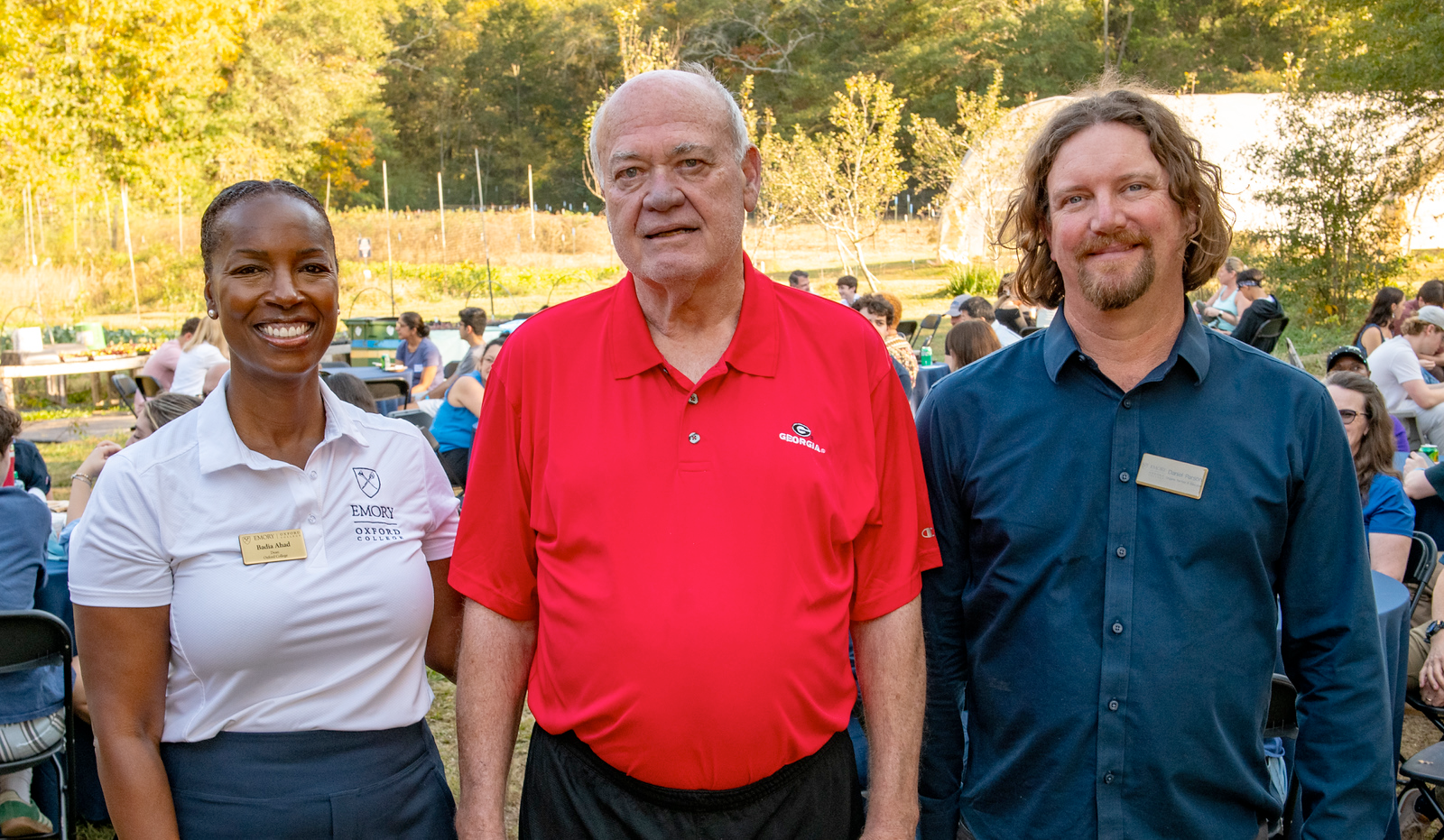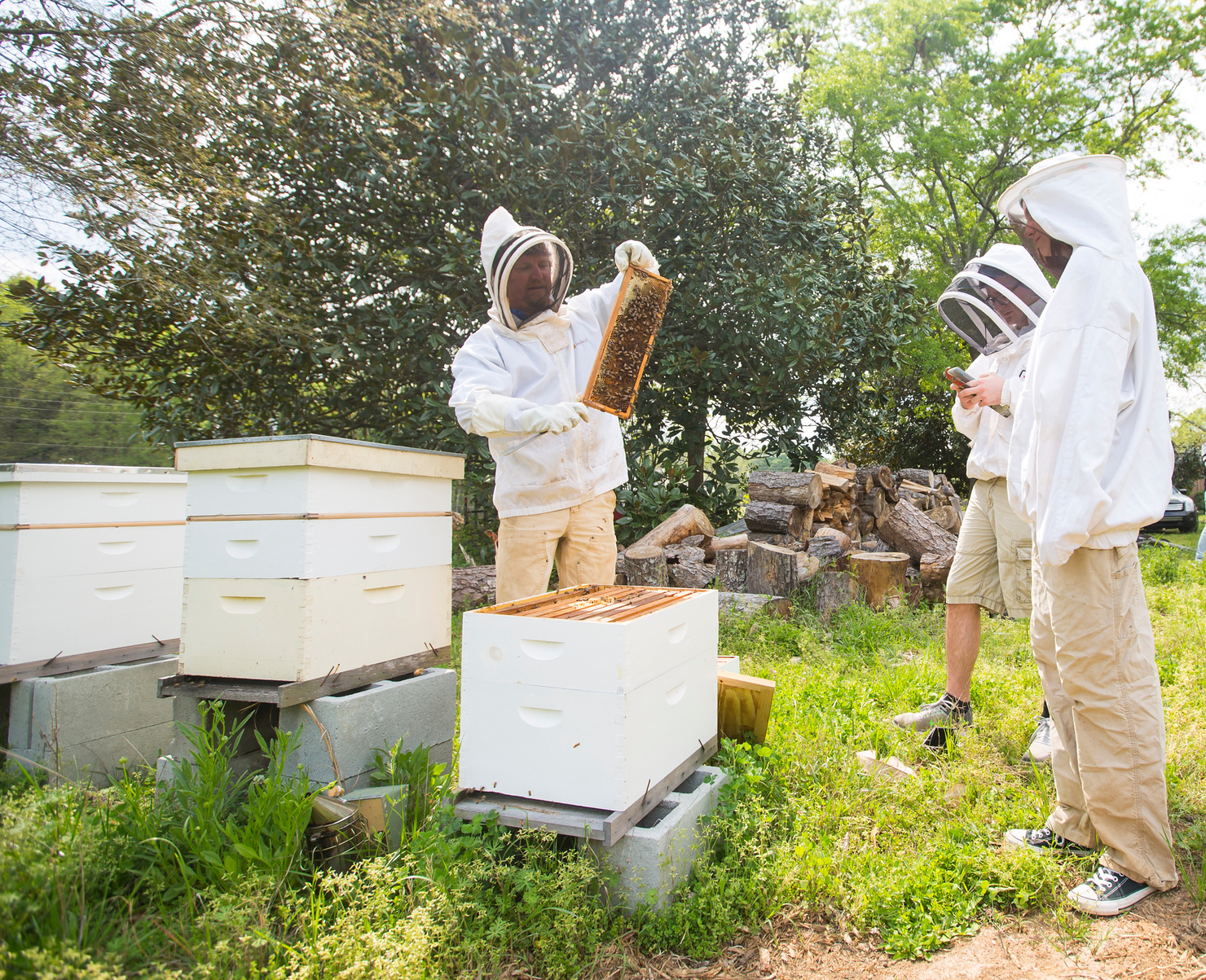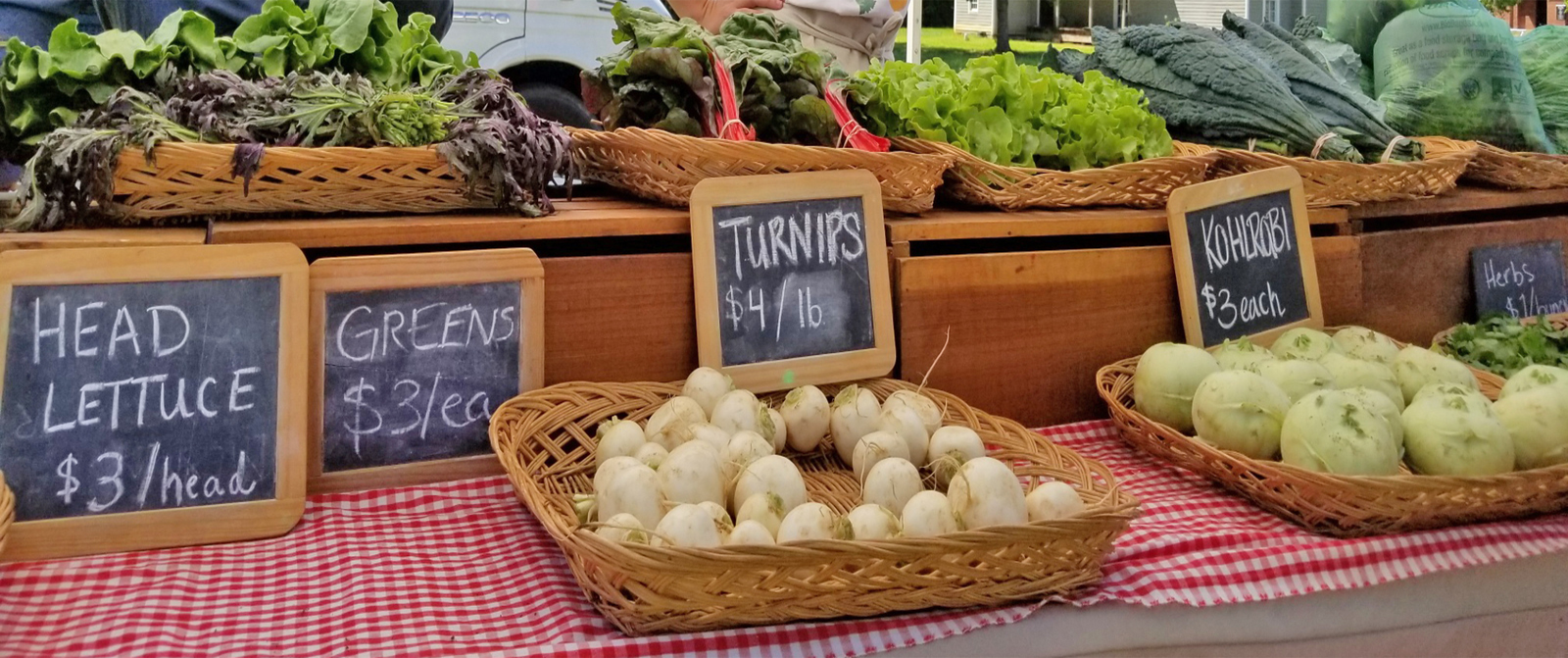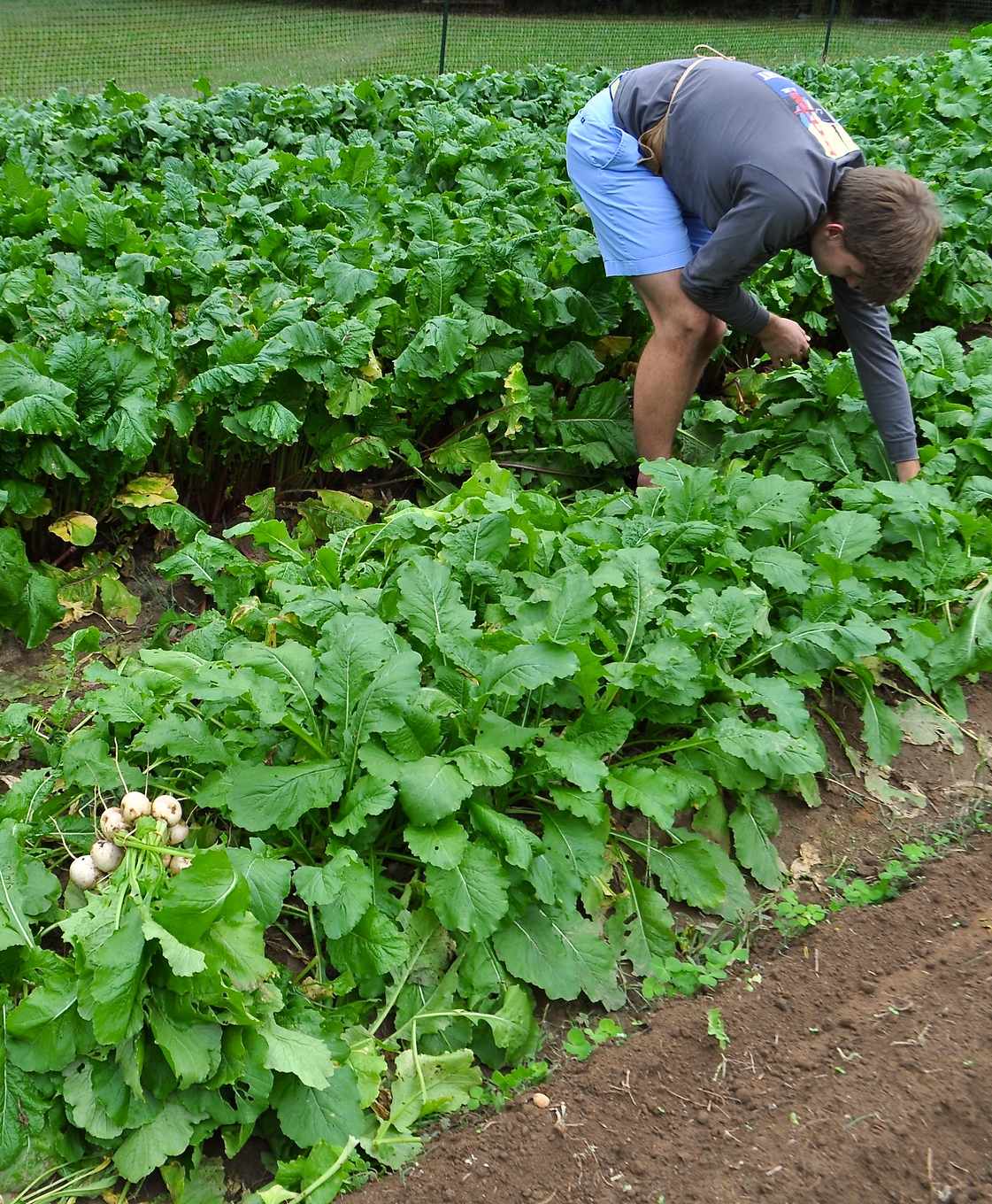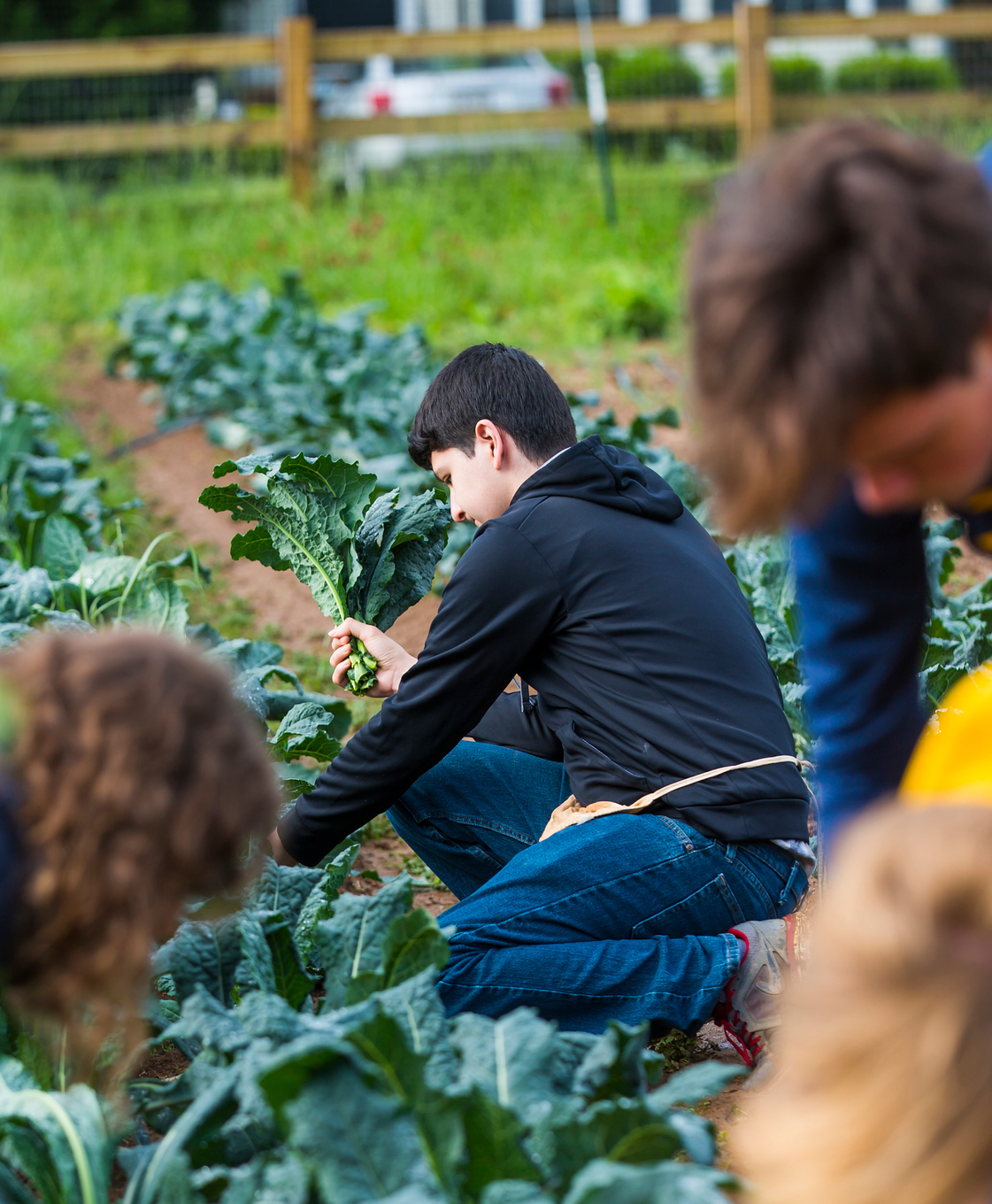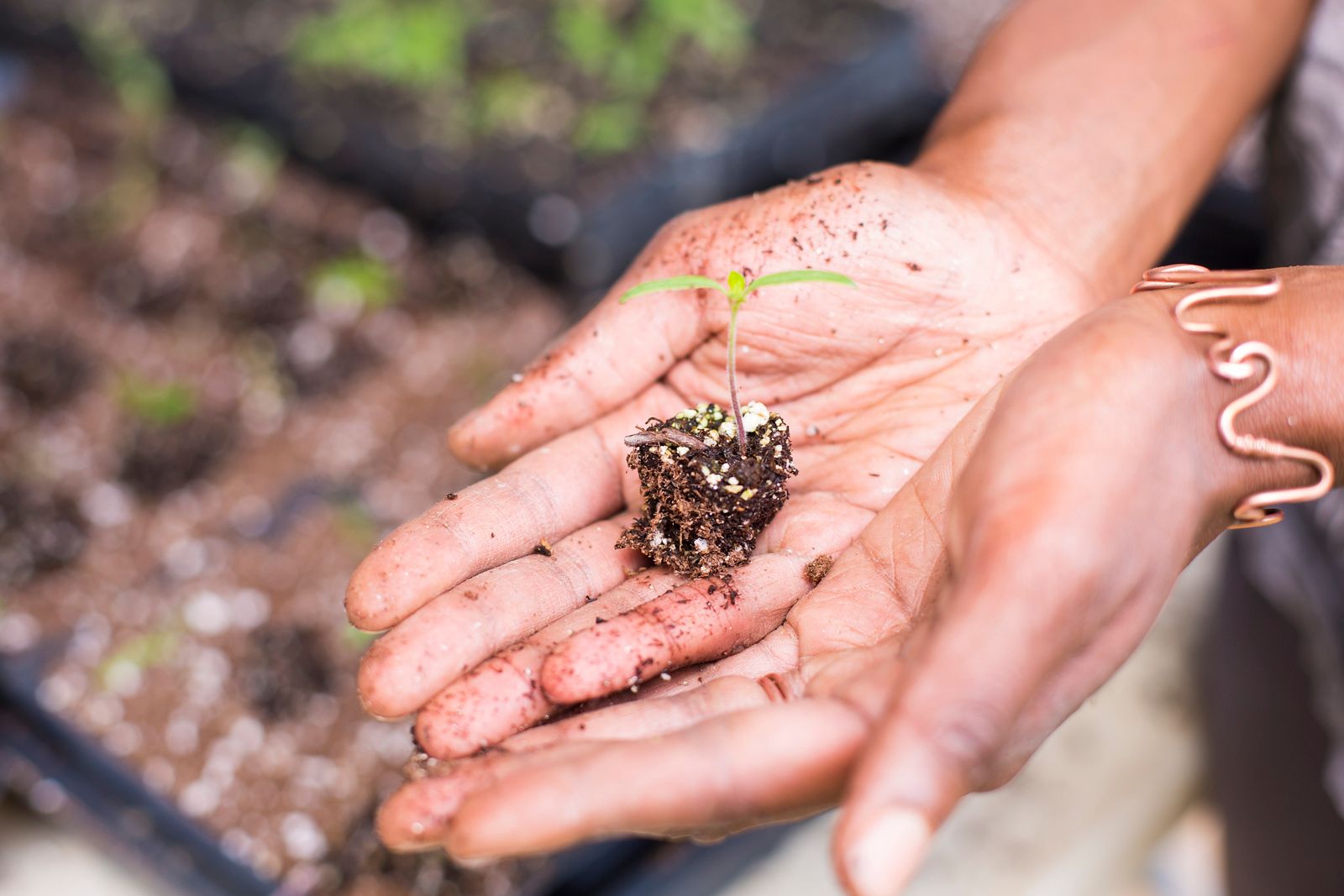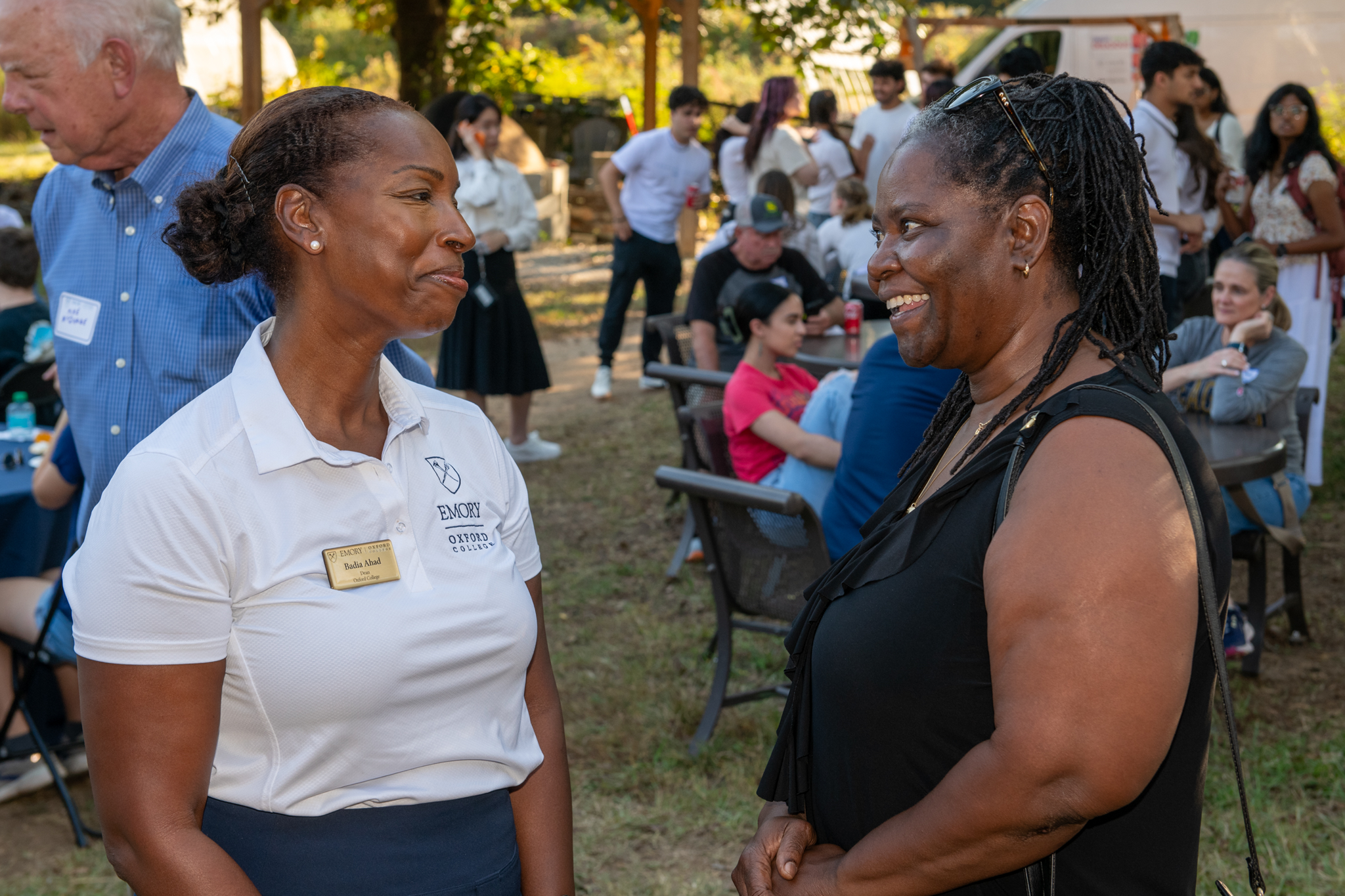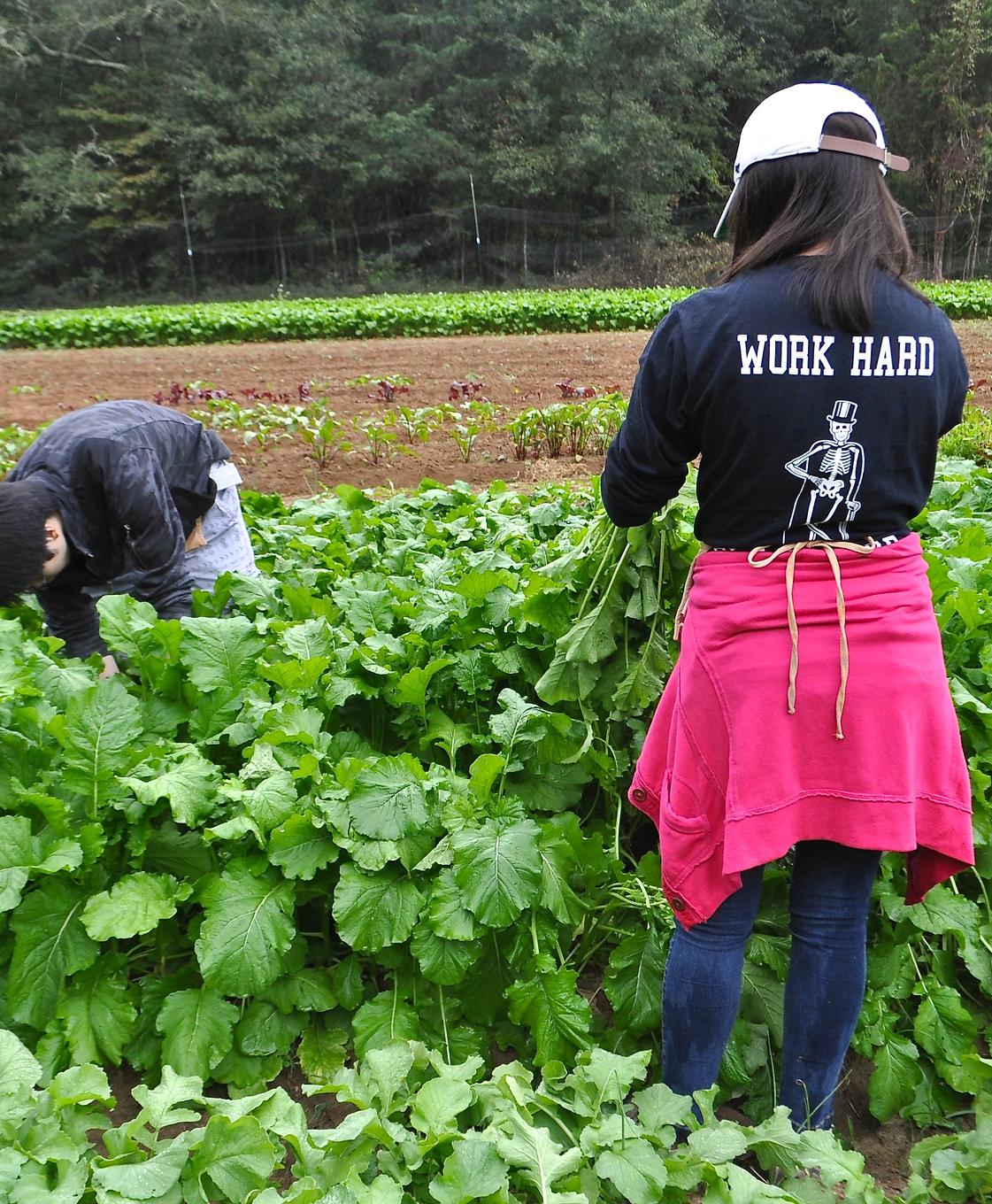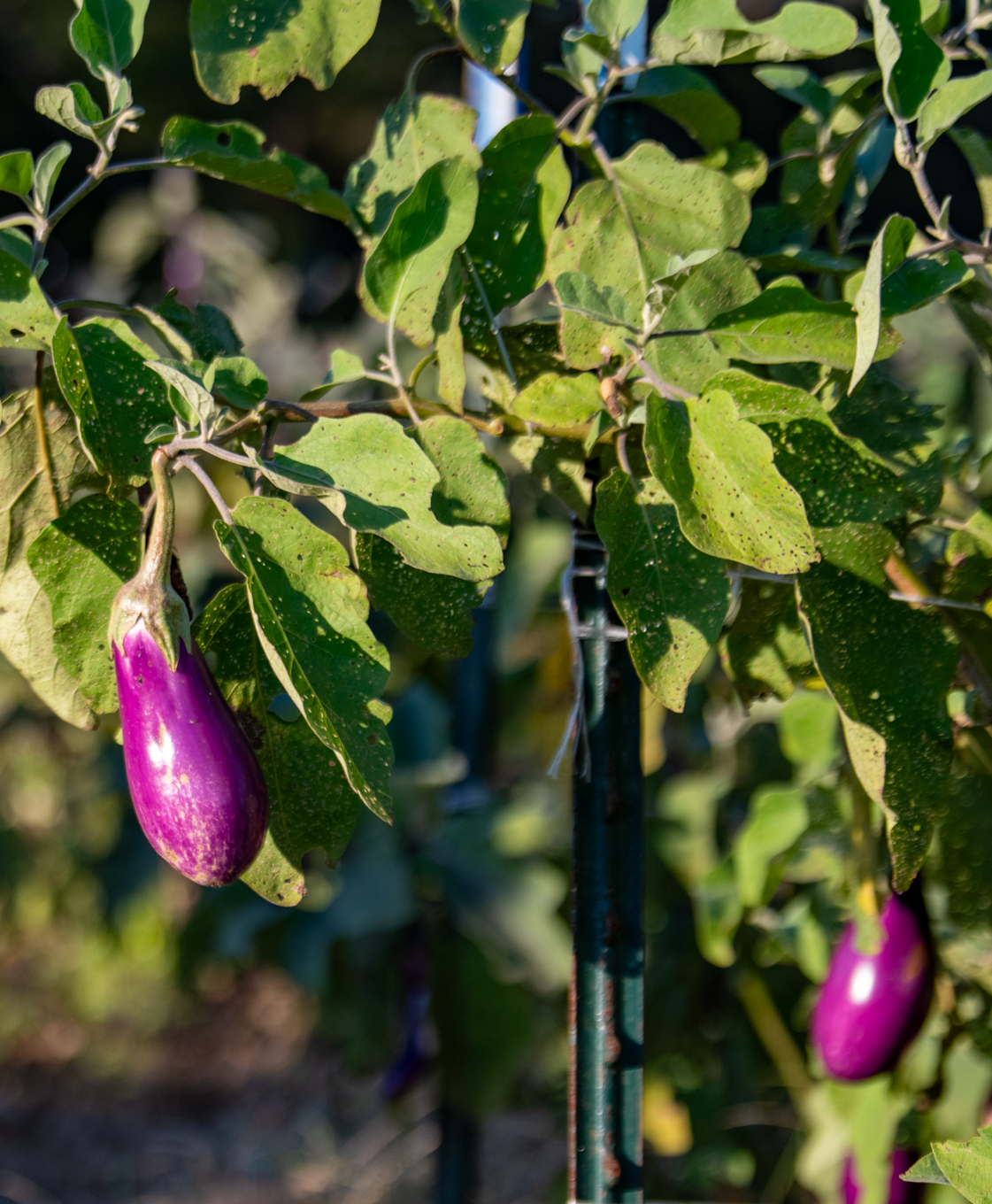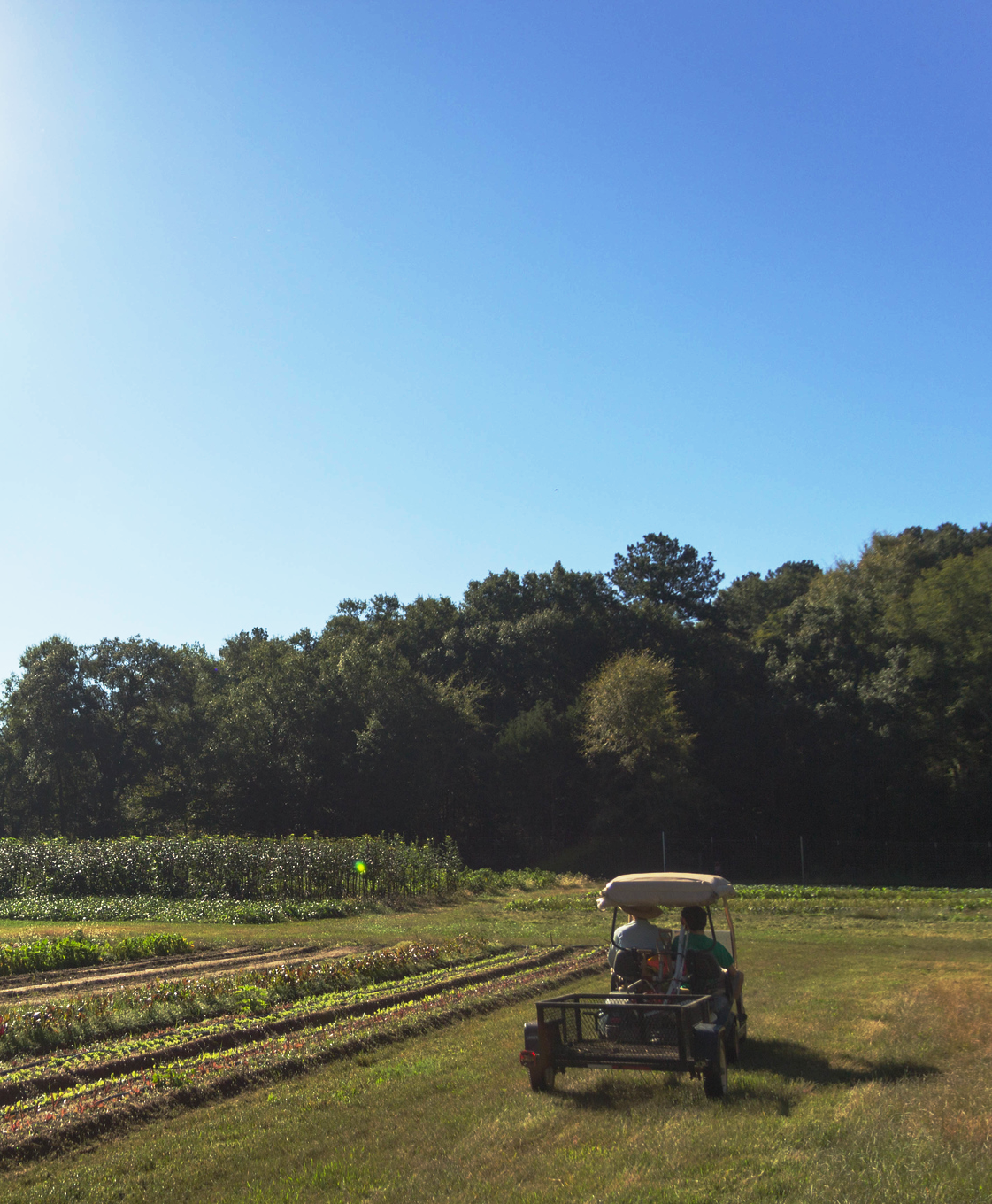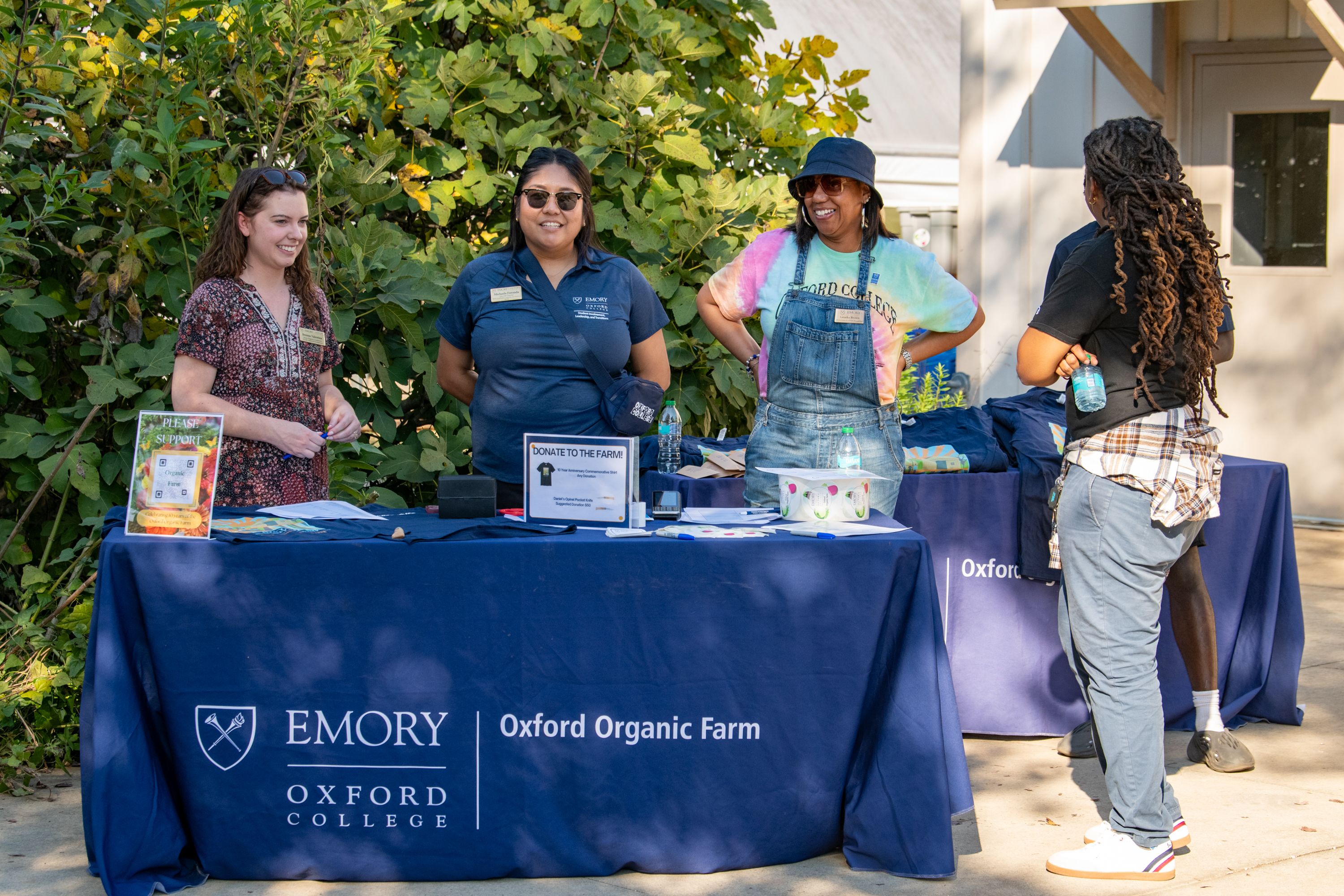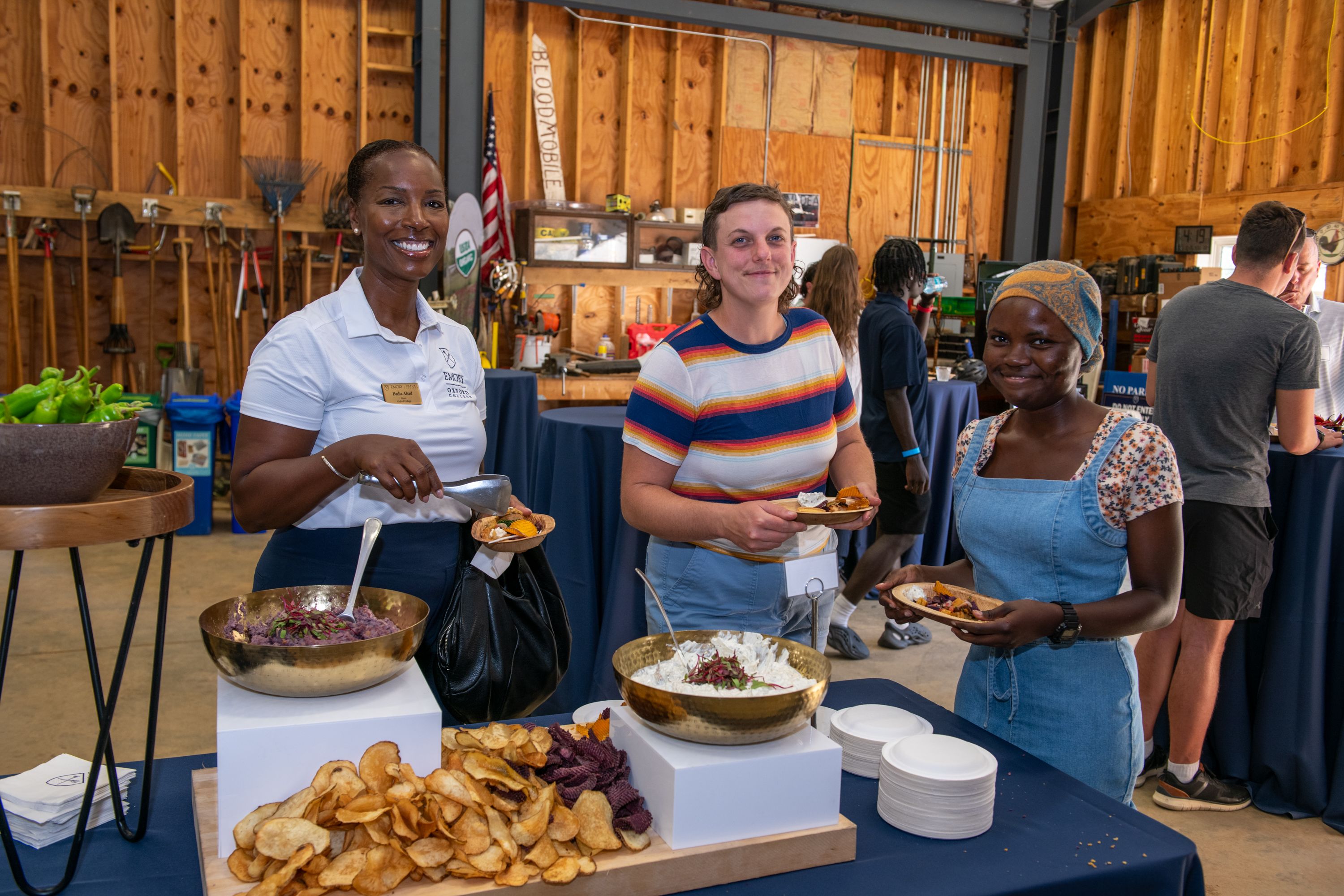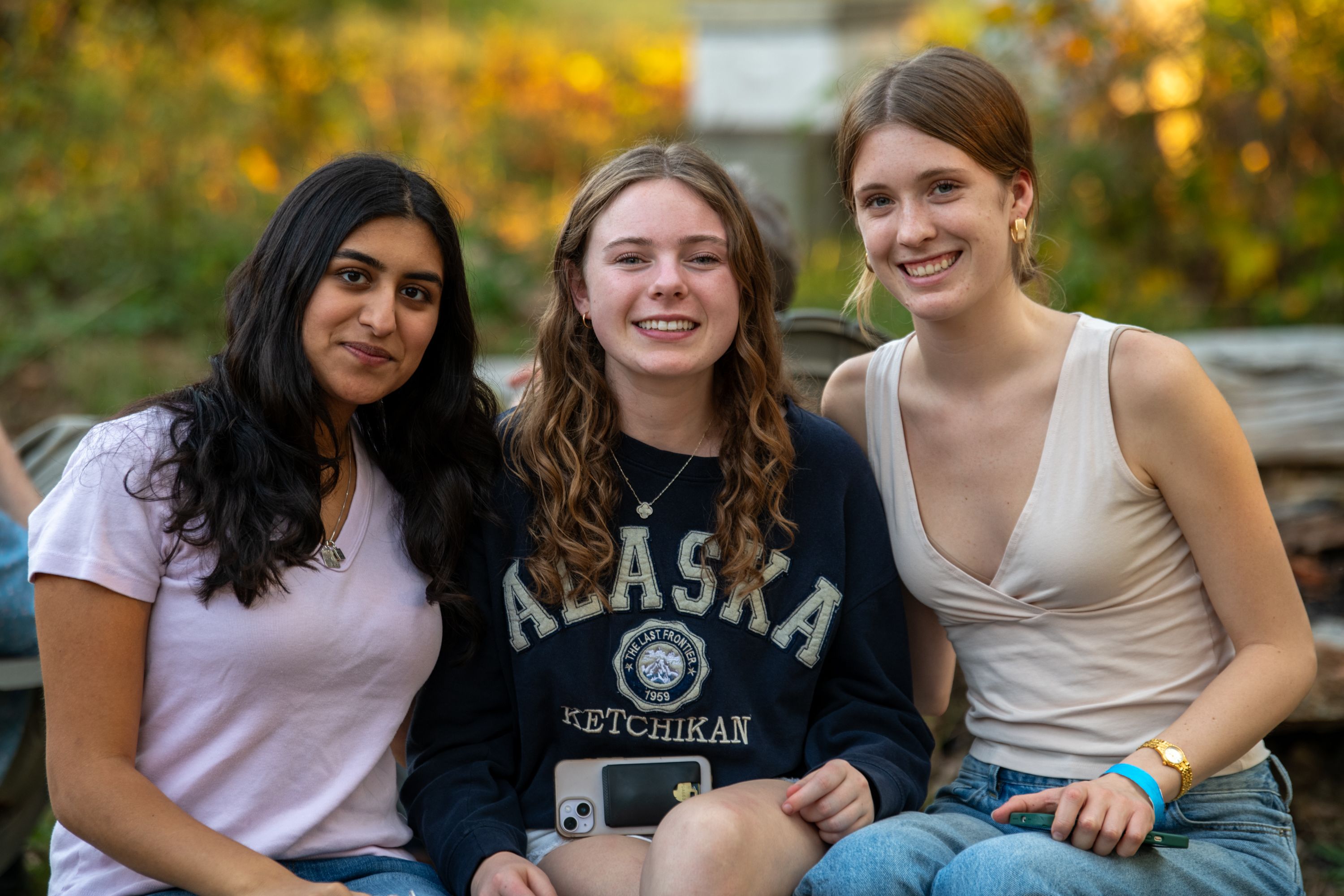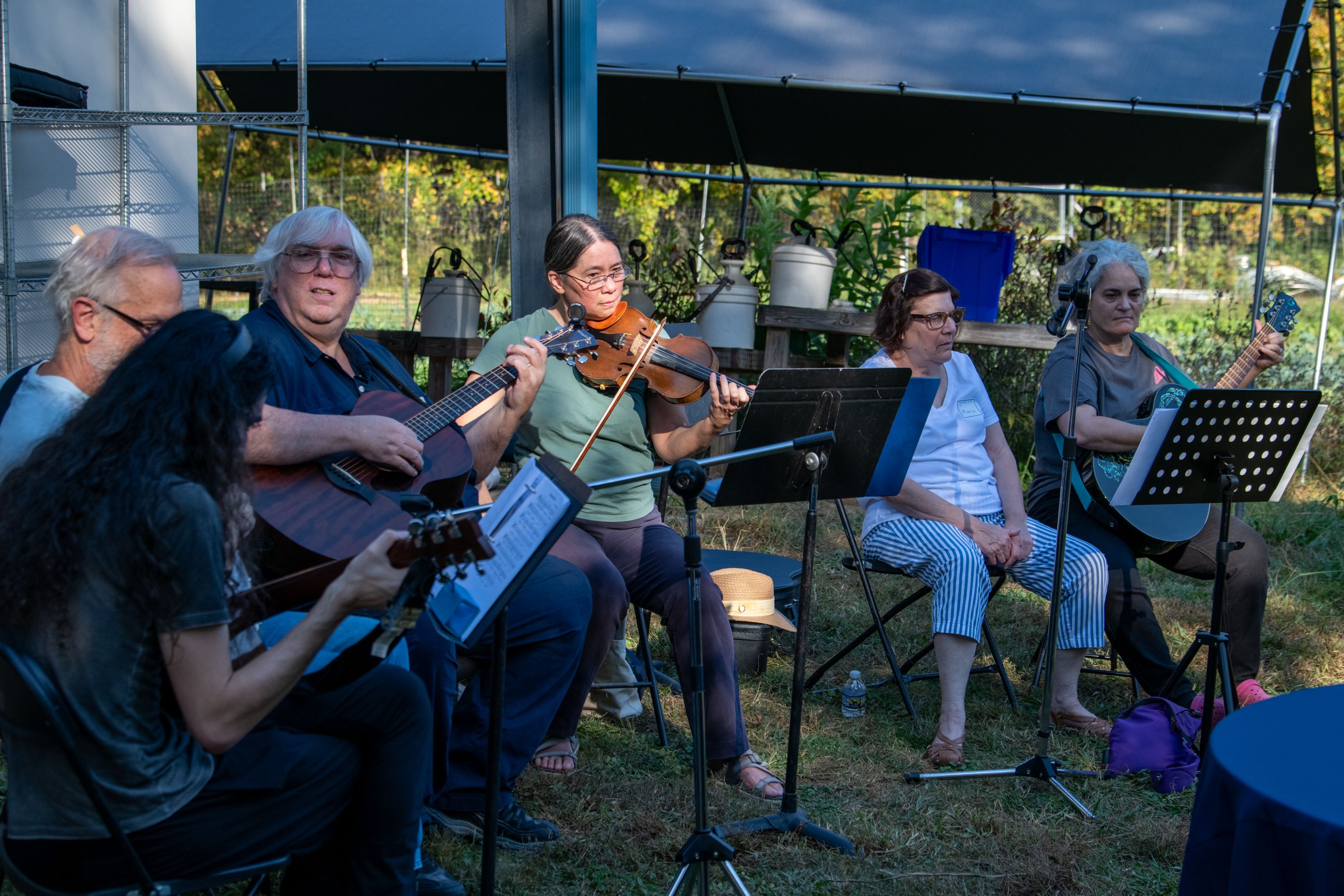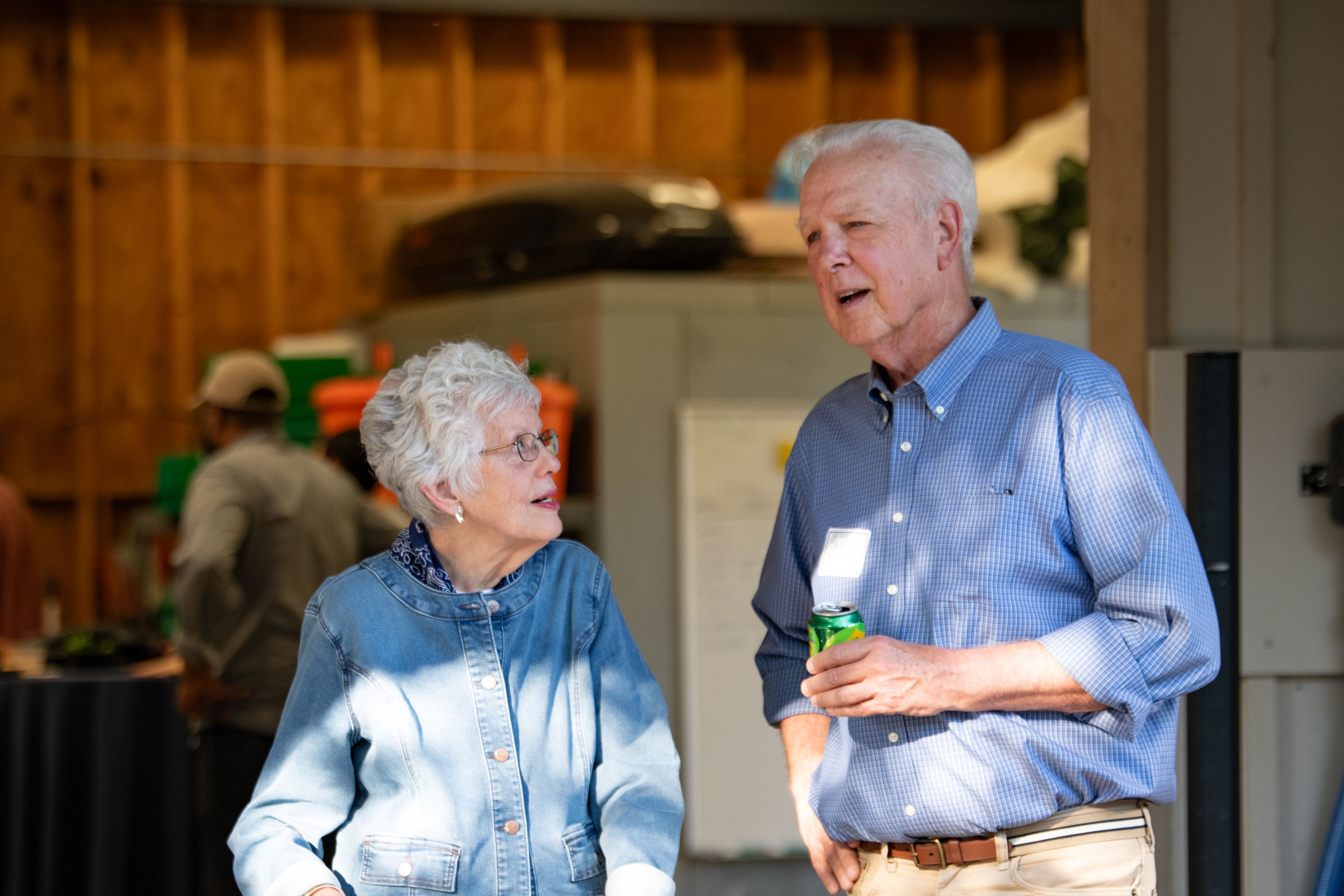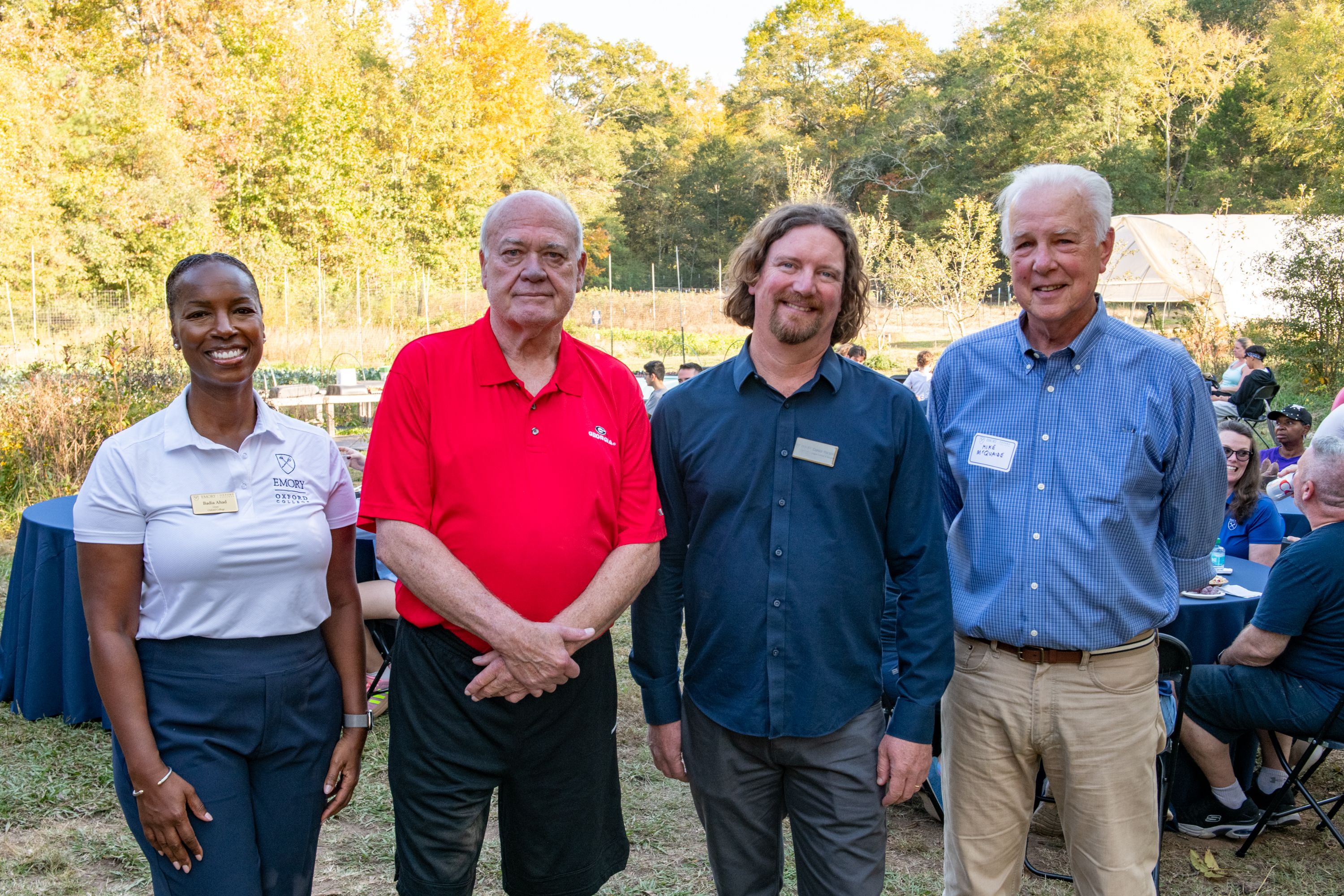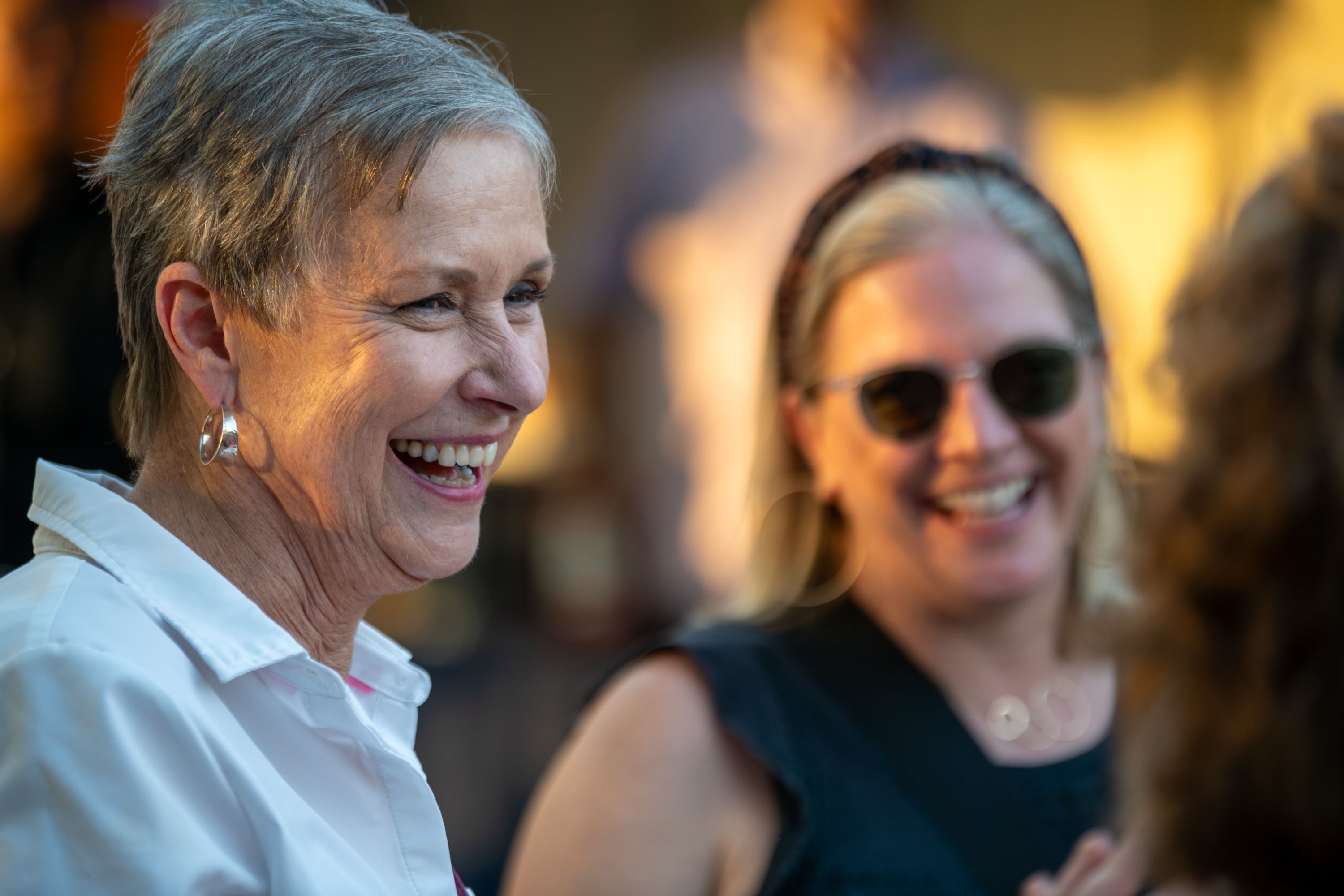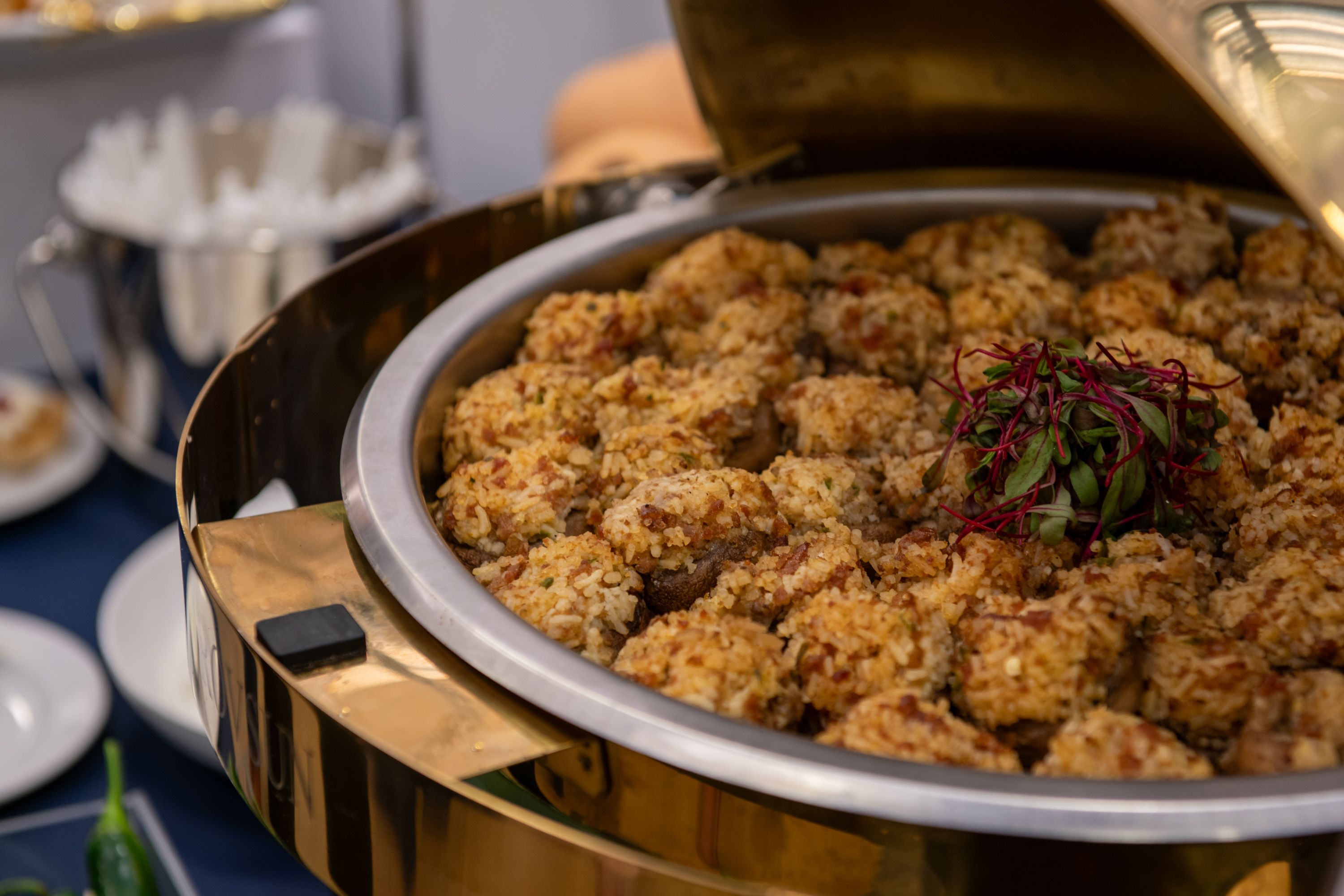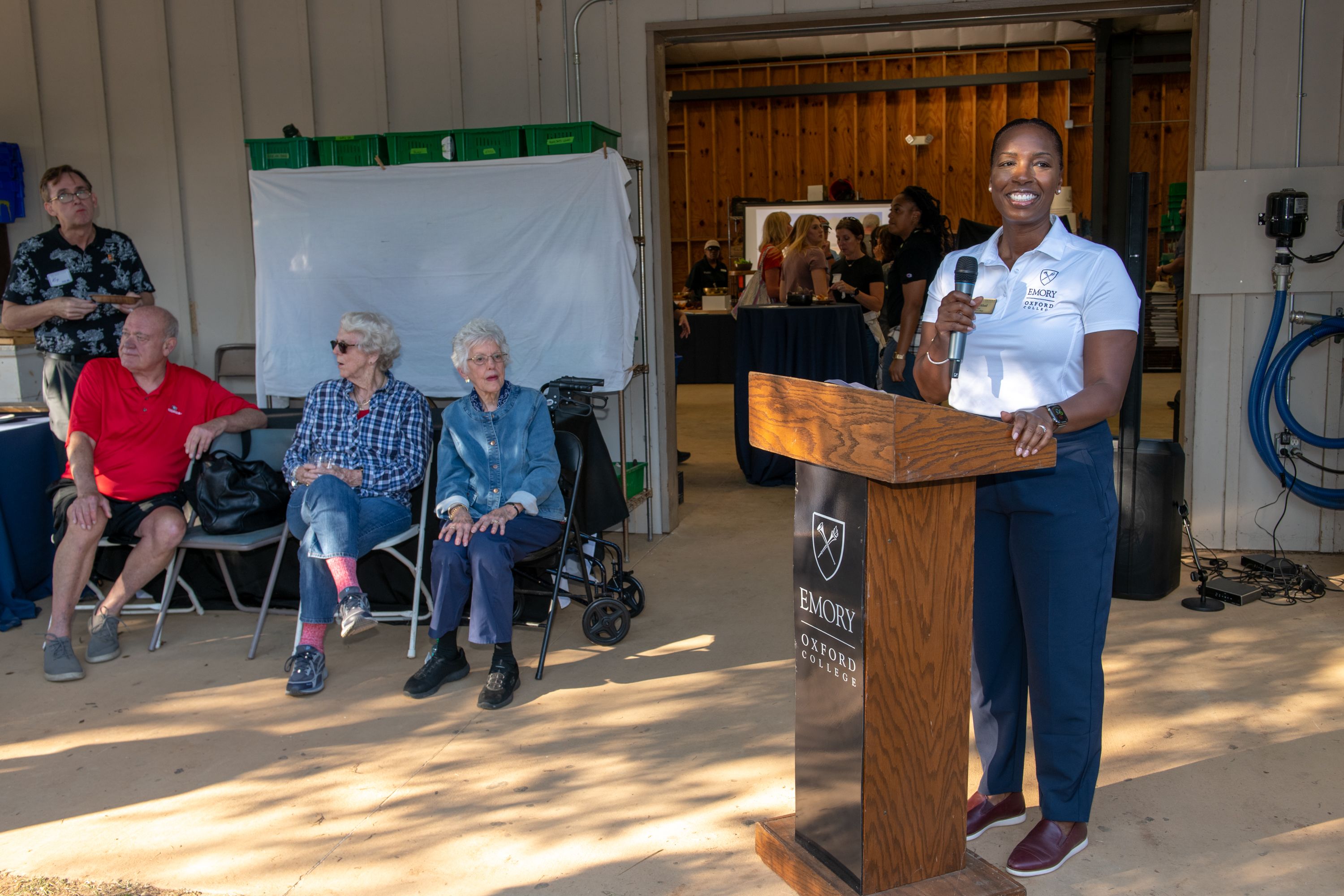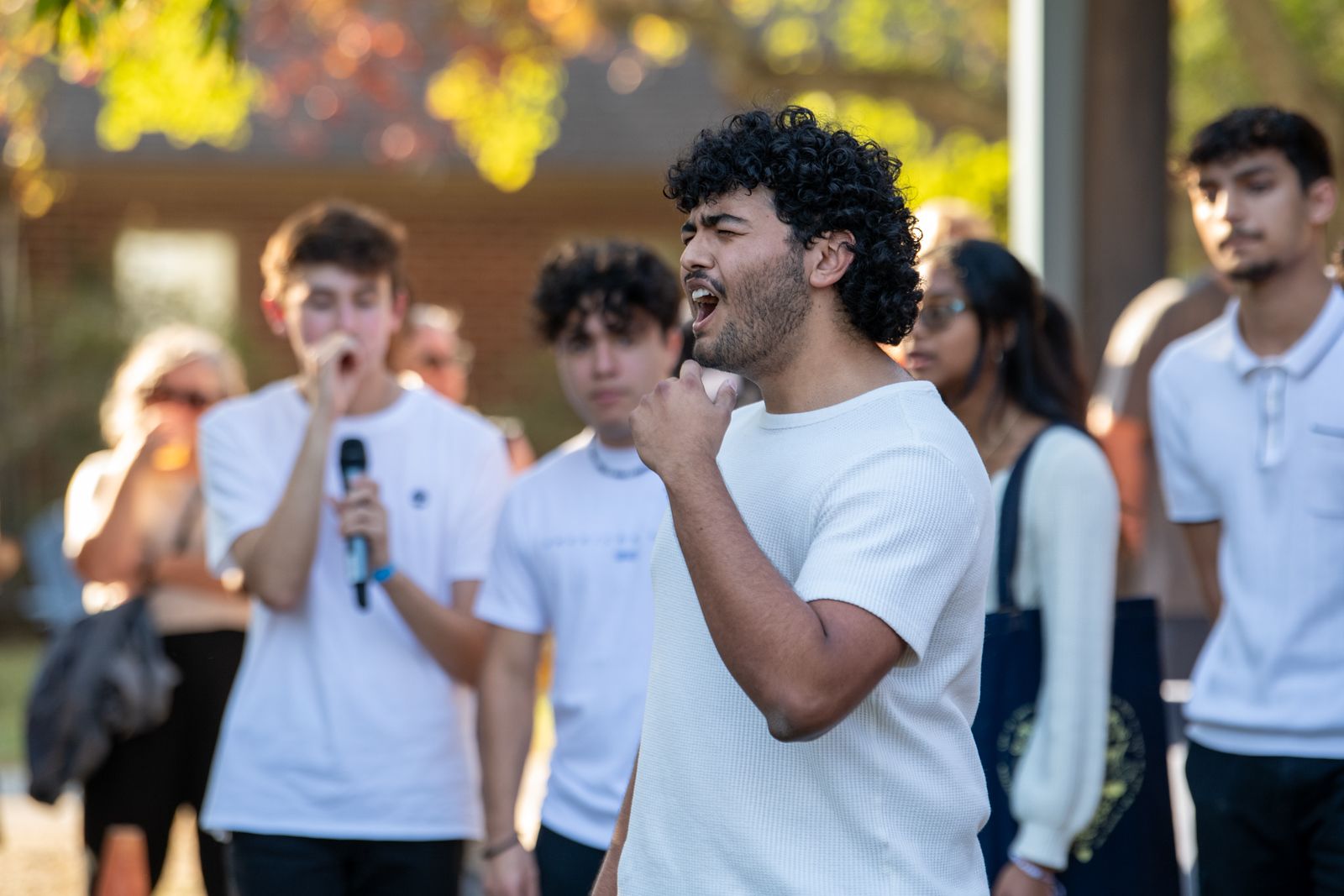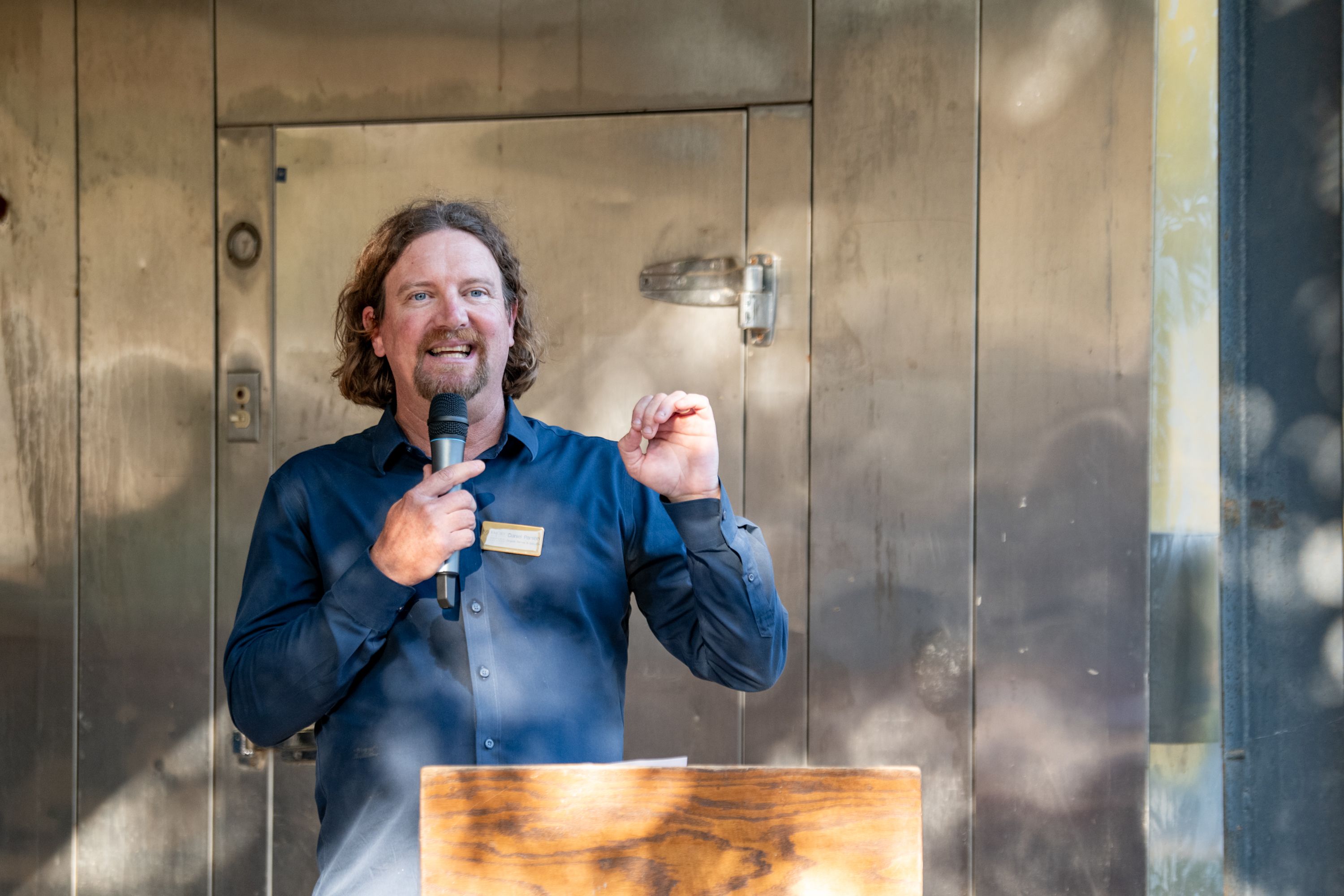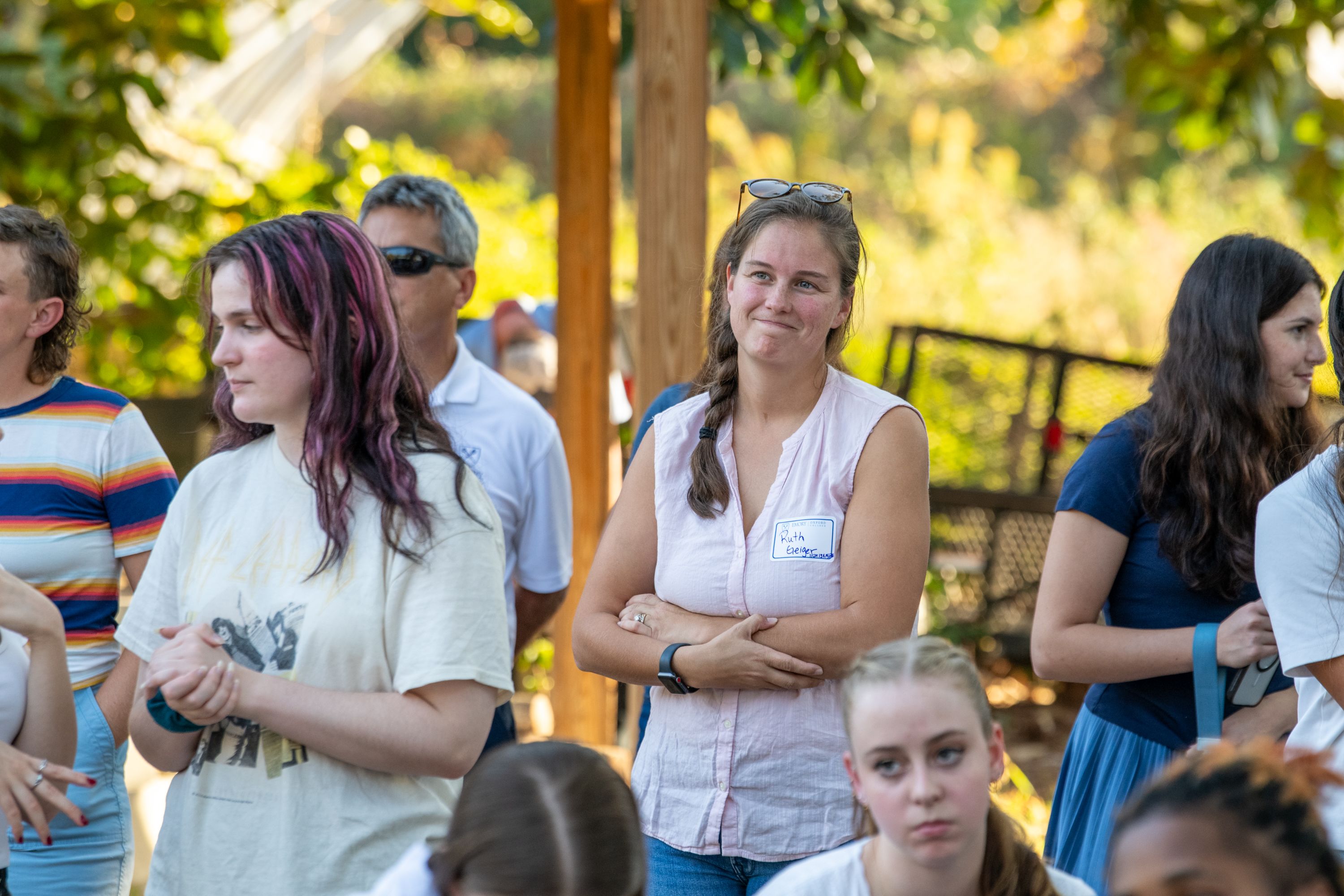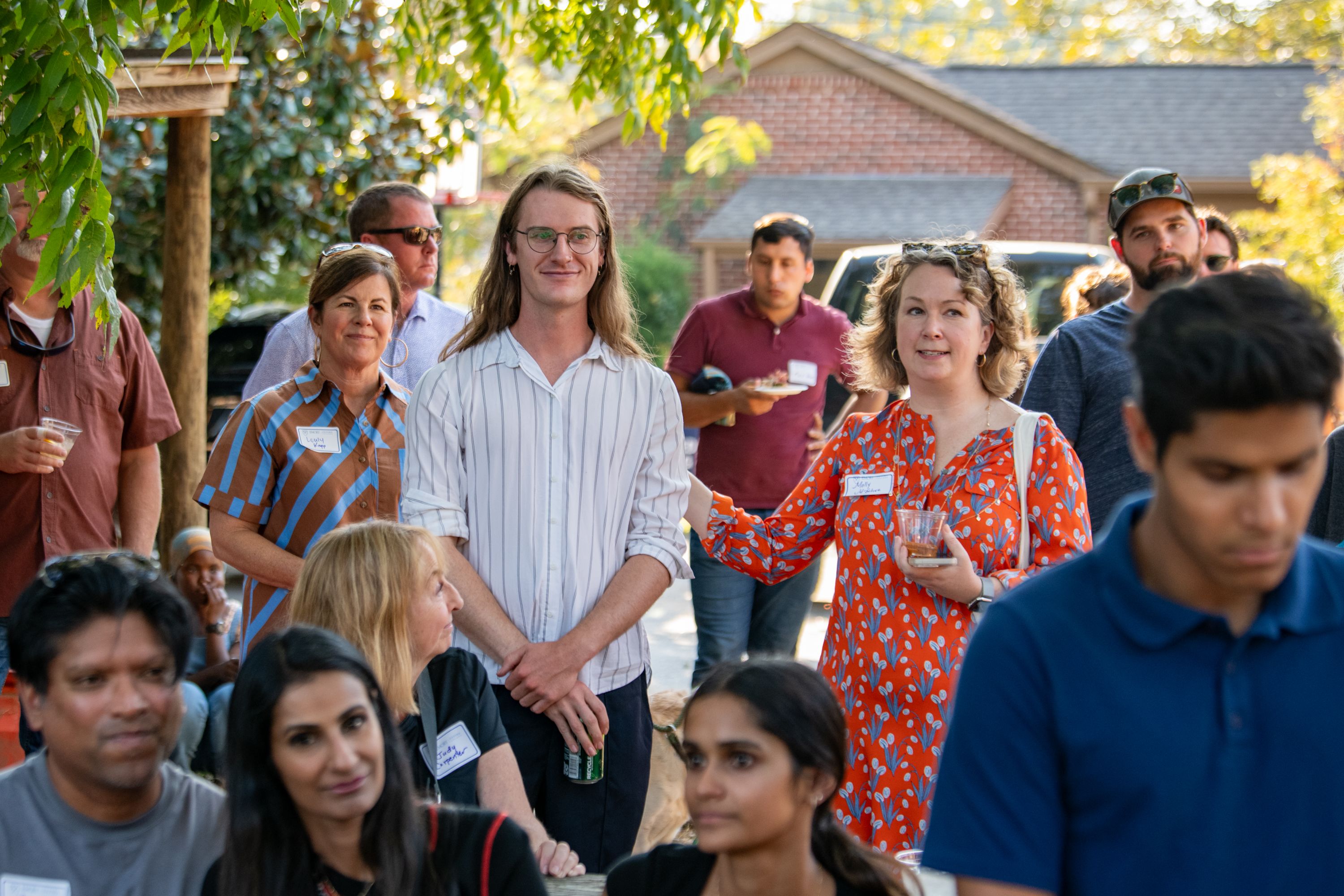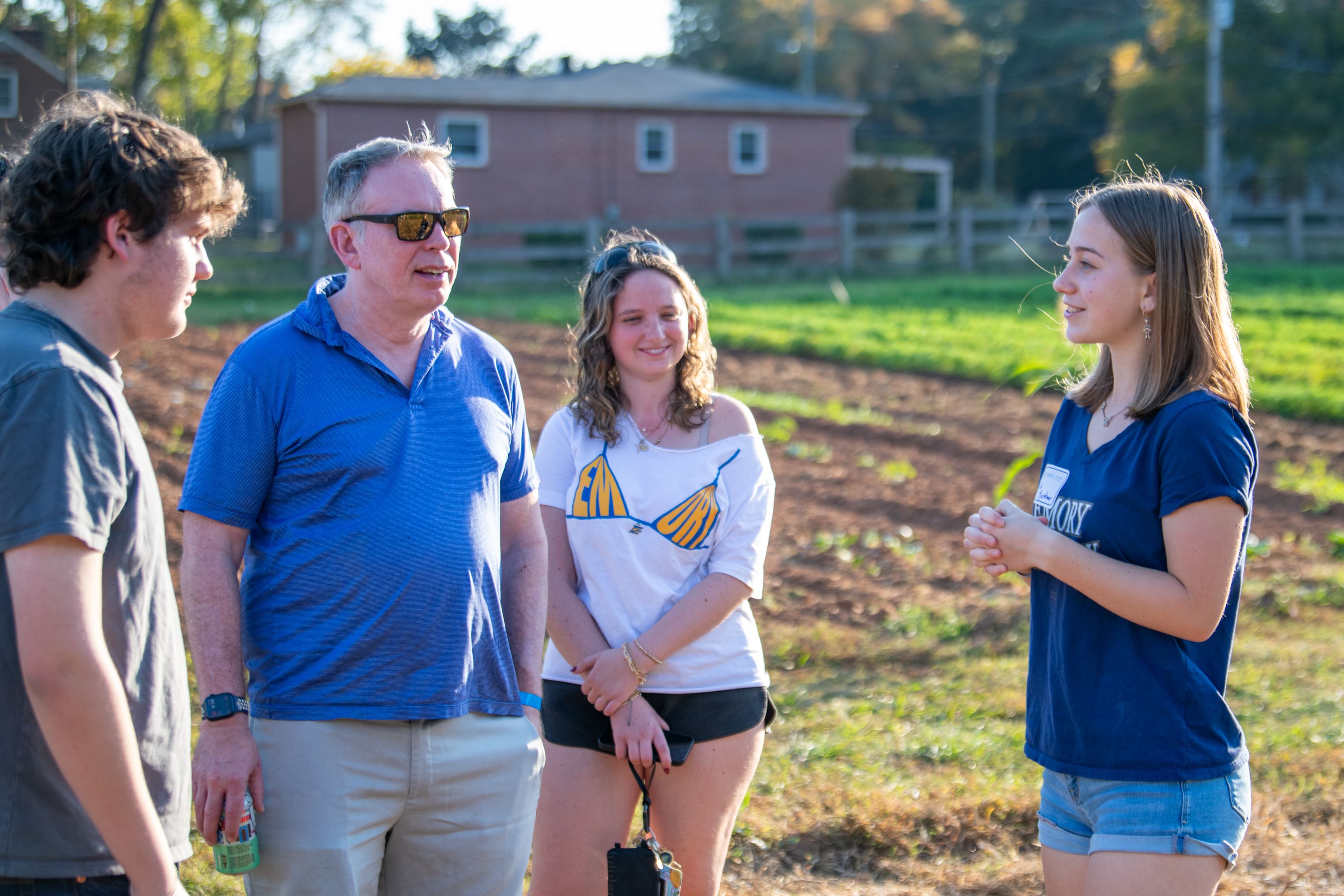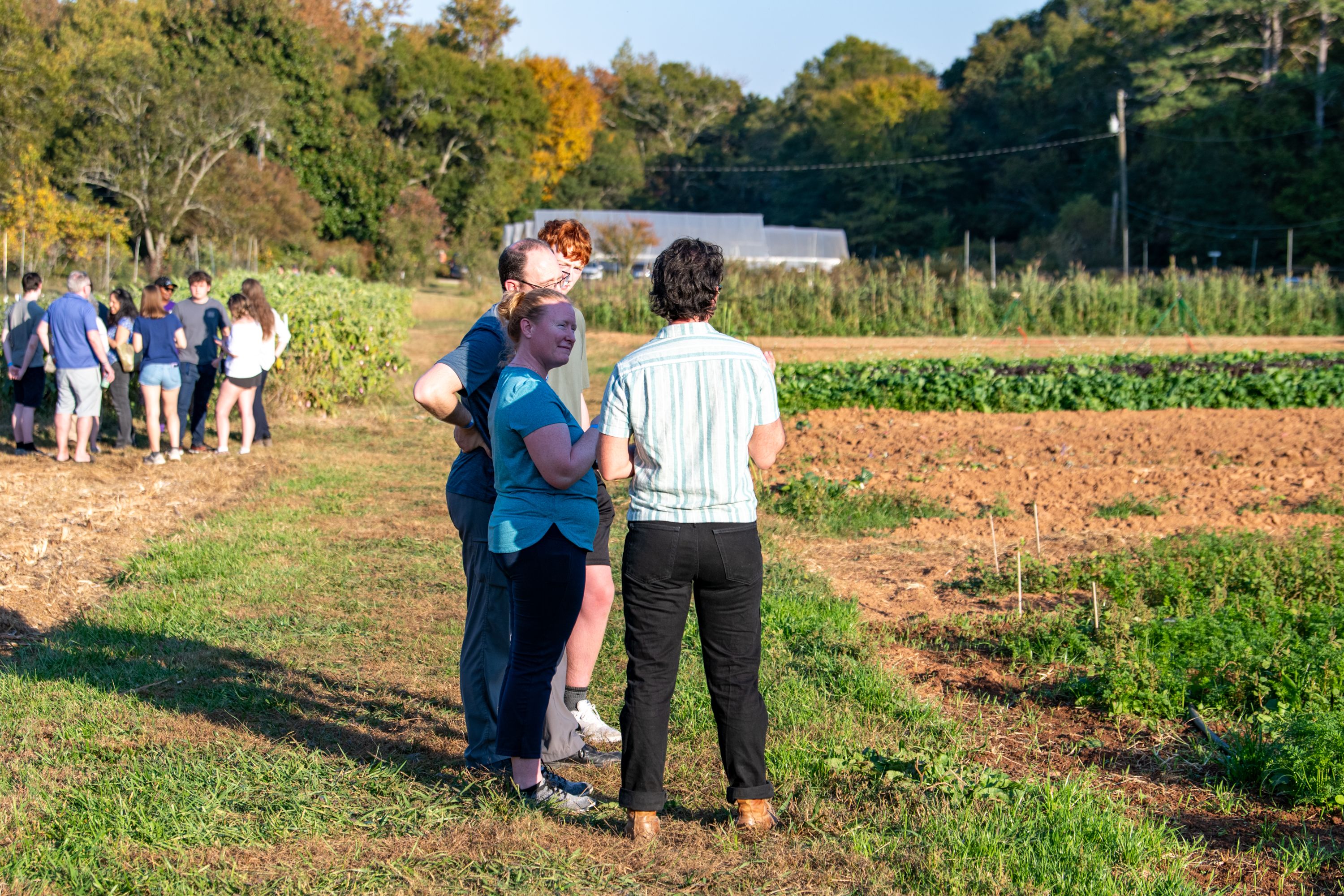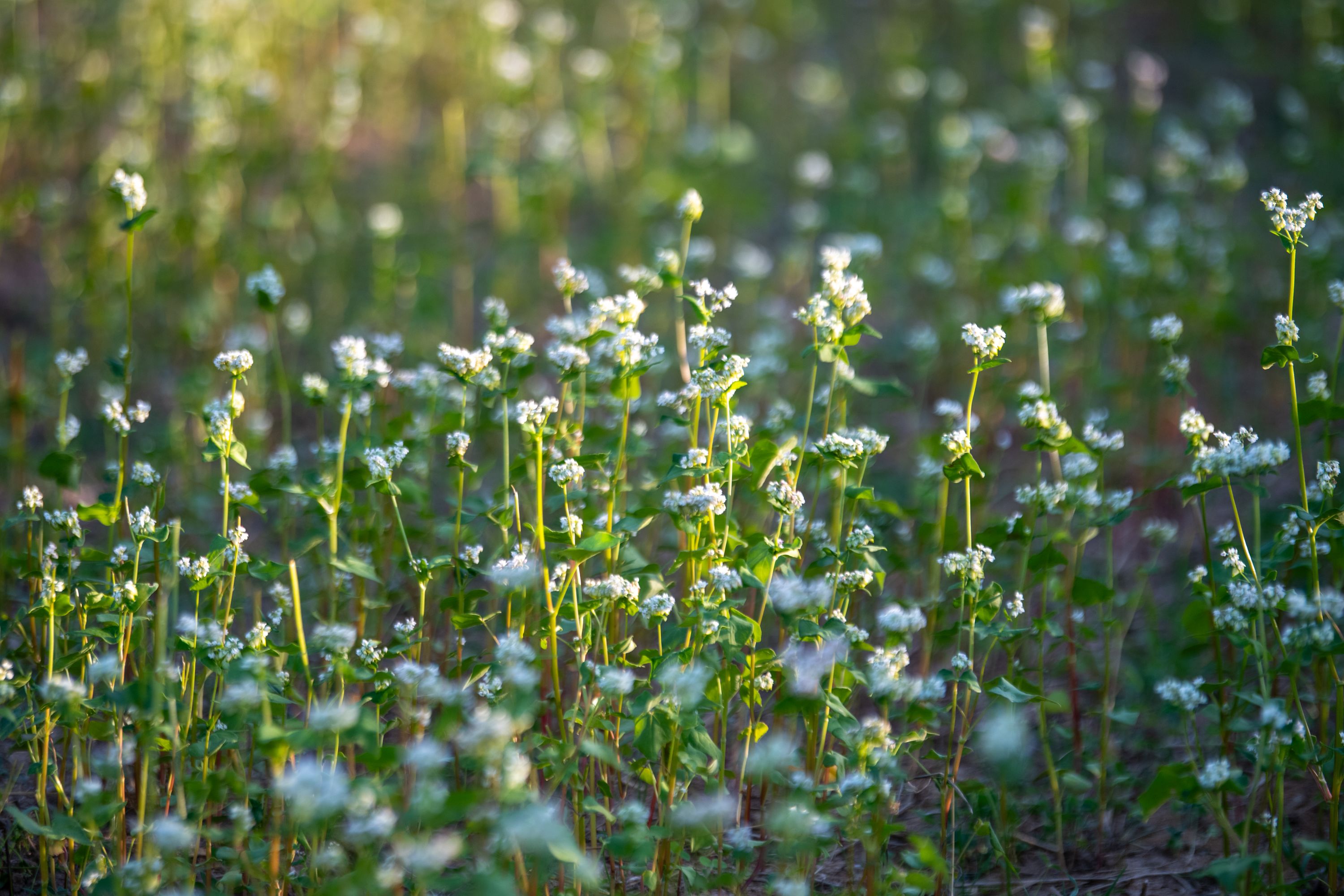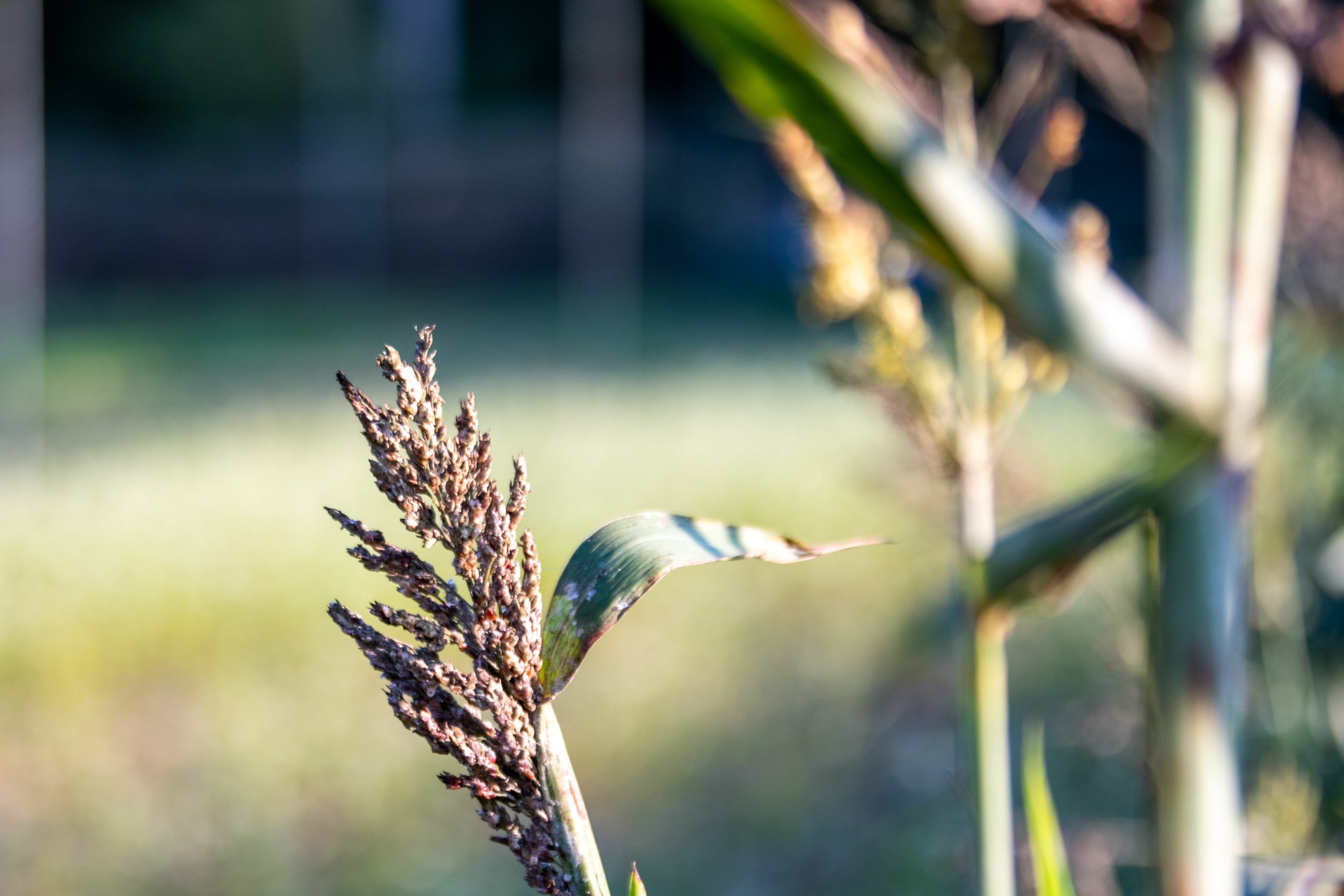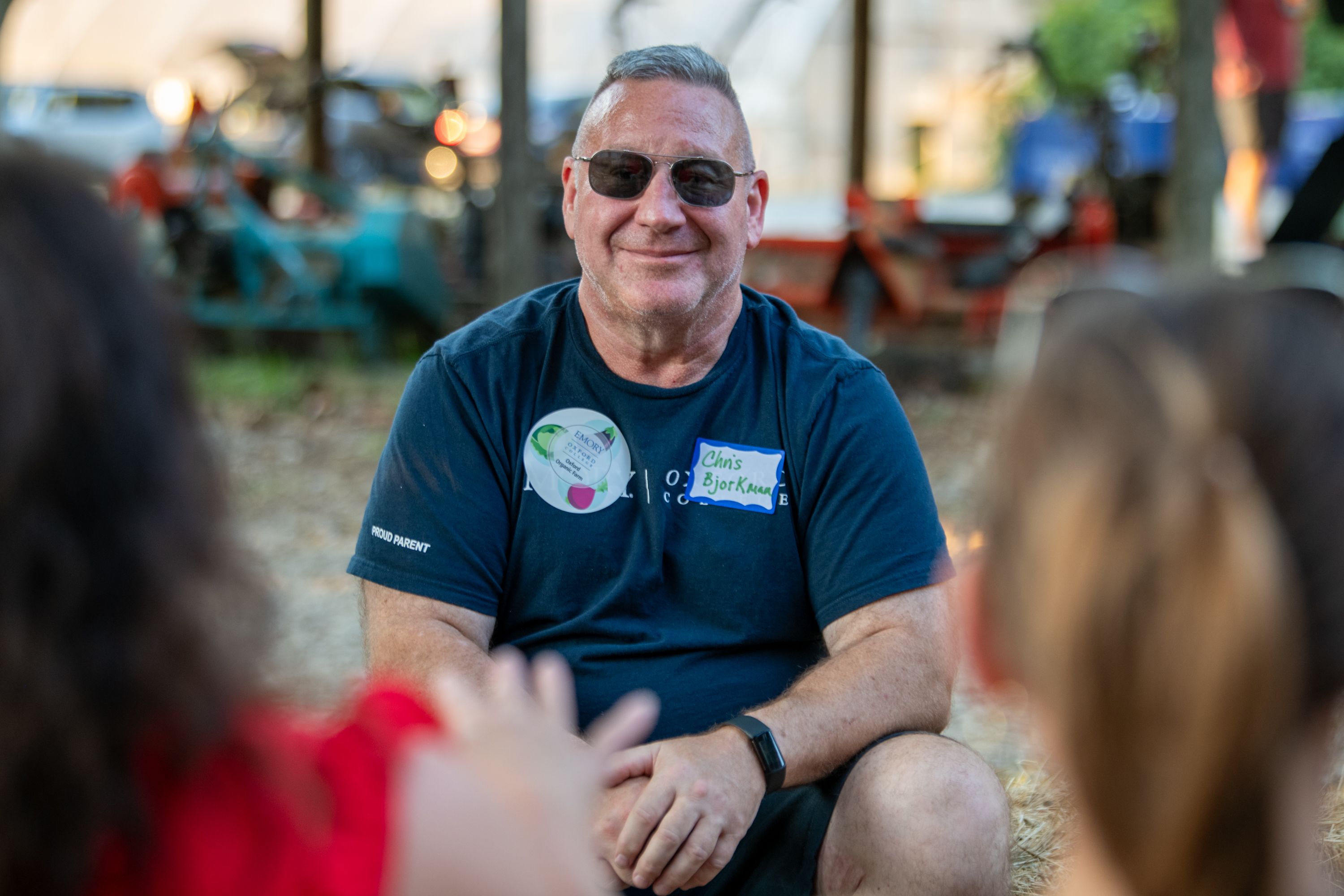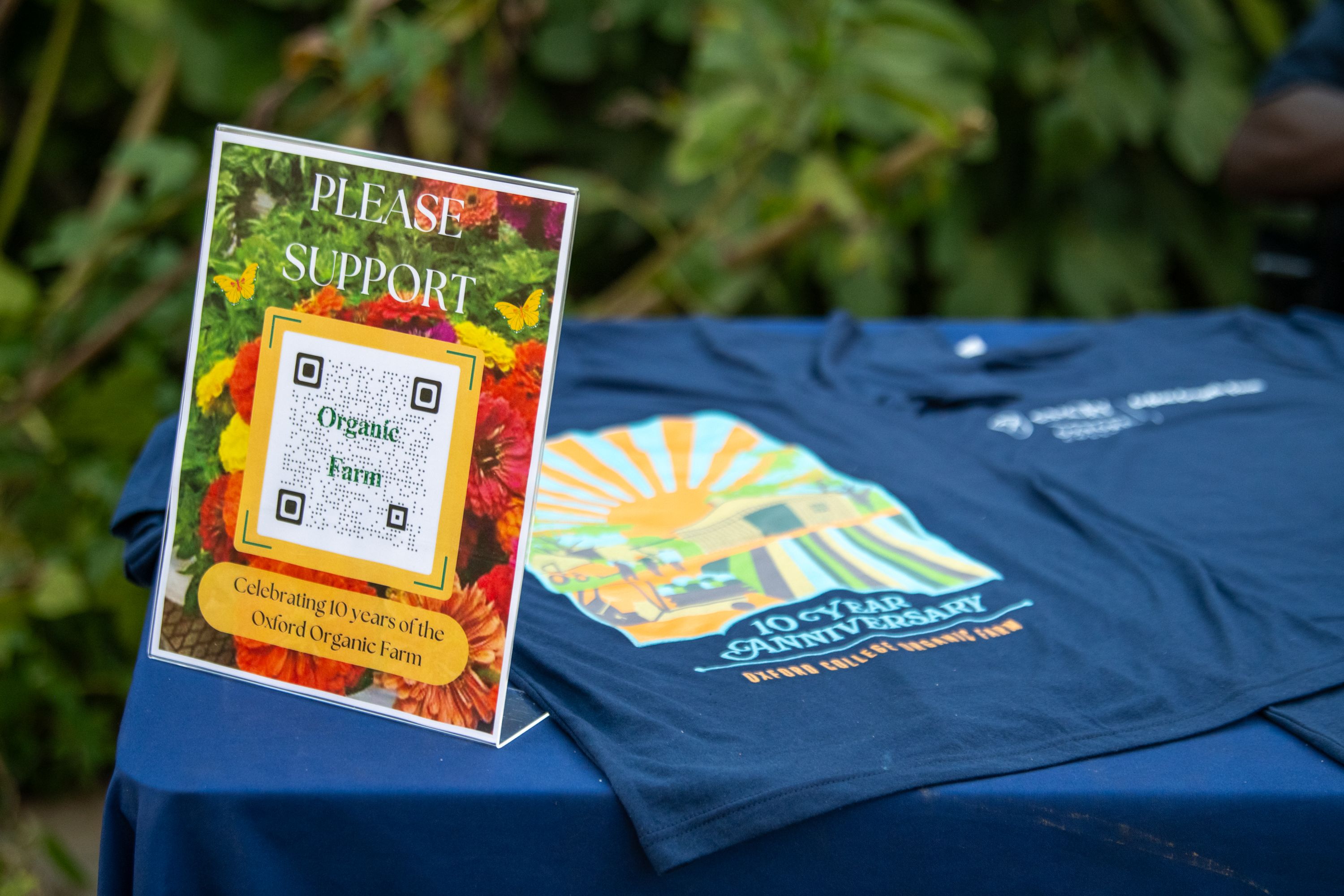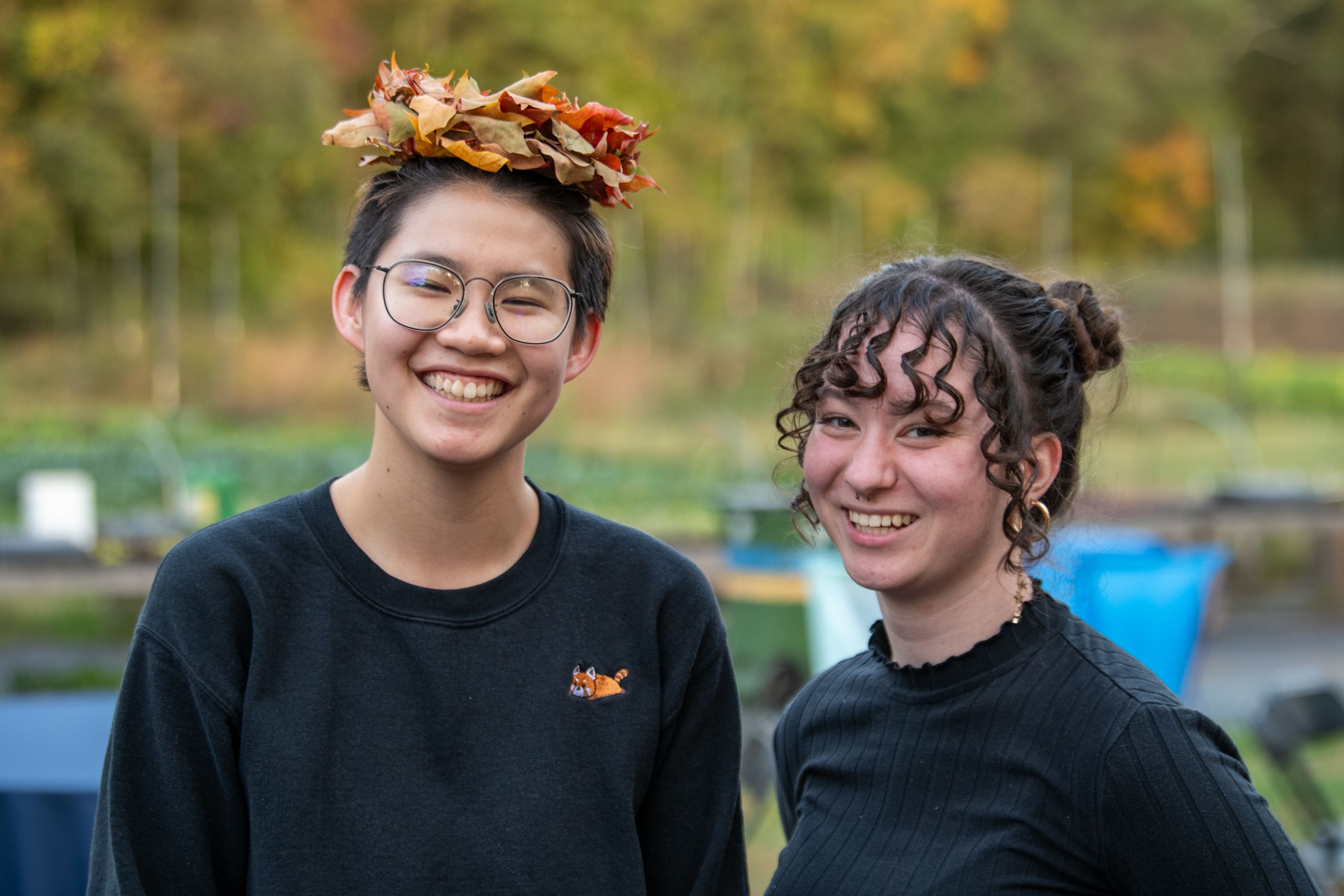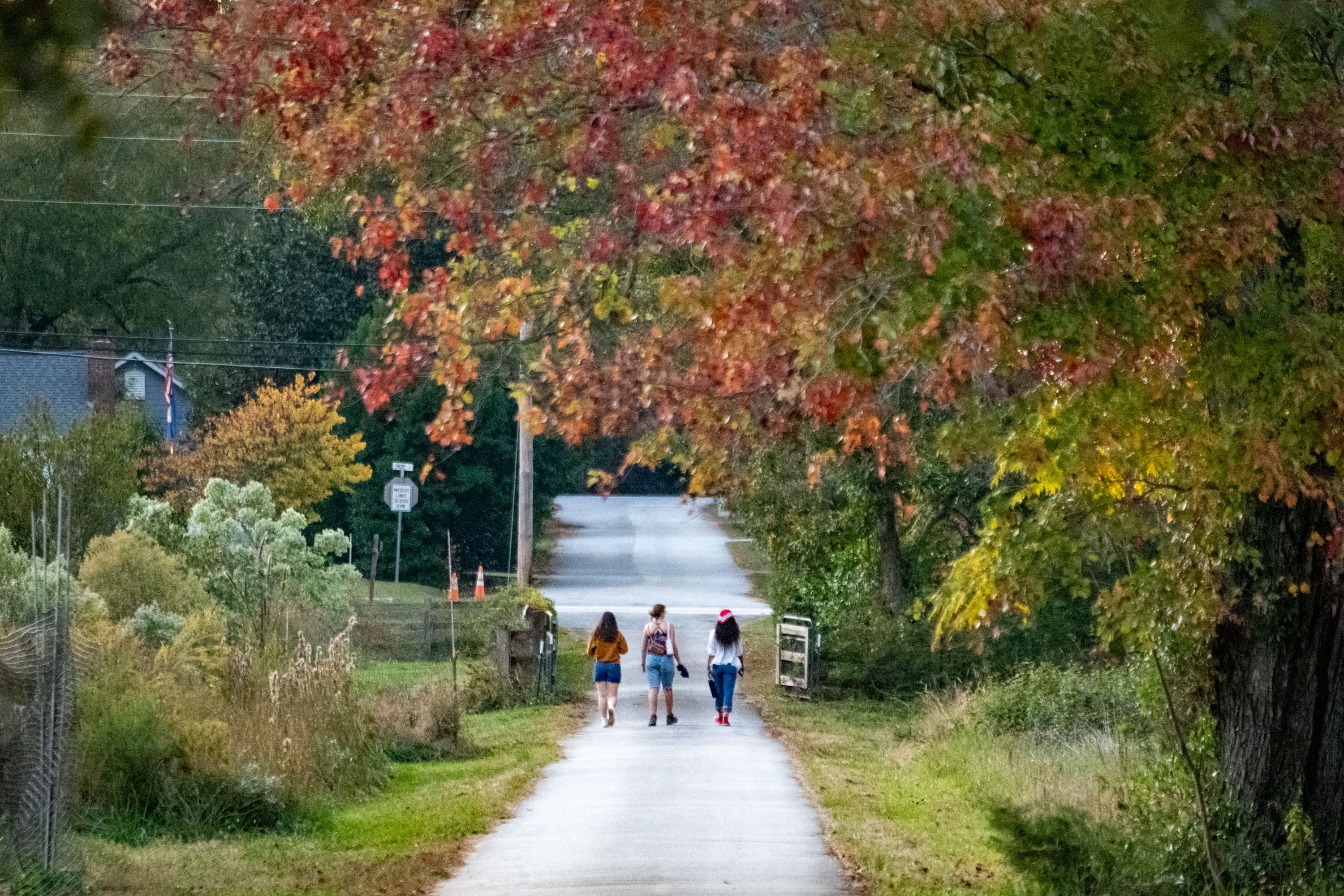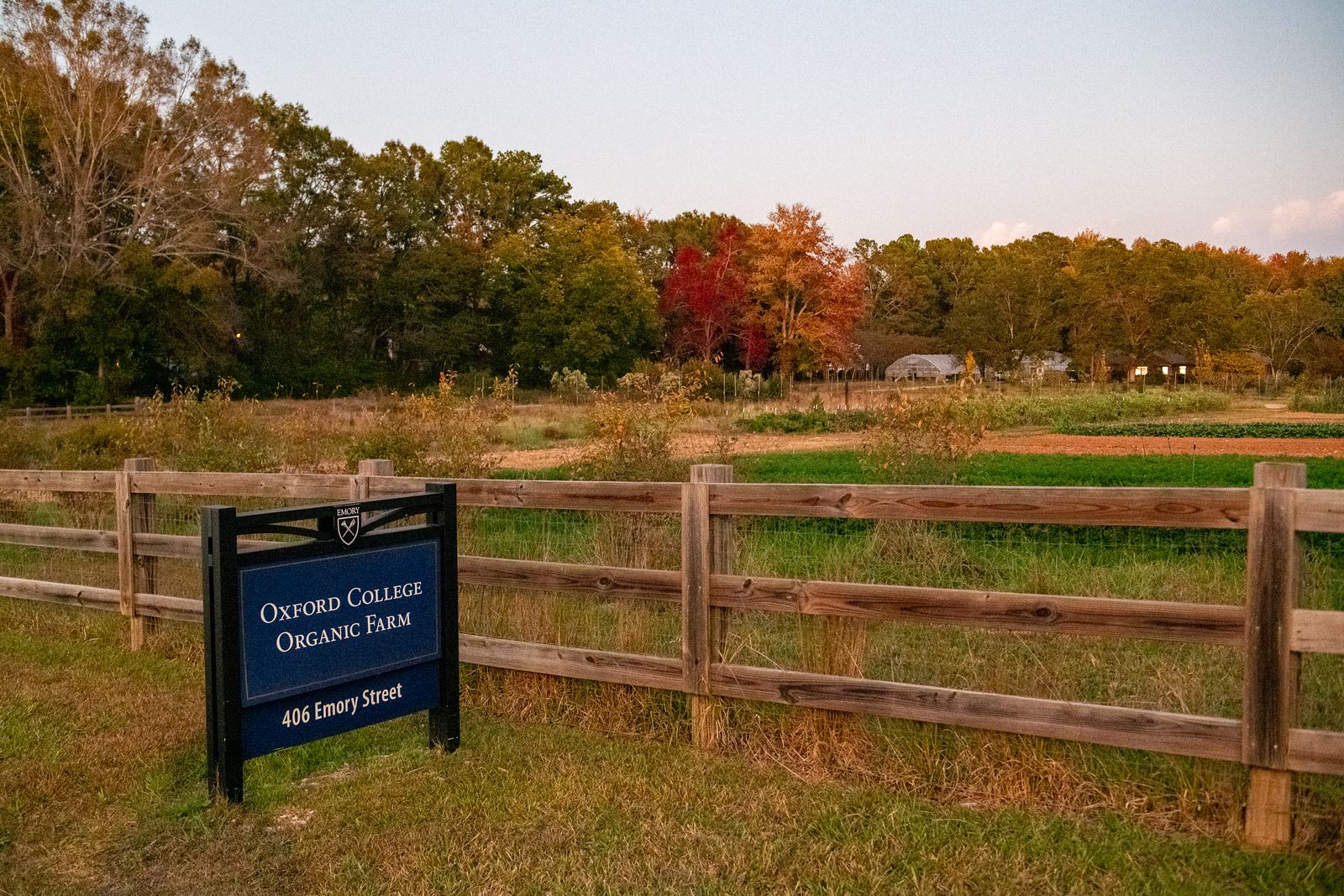
The Oxford Organic Farm celebrated its 10th anniversary on October 26, bringing together faculty, staff, students, alumni, and visitors in town for Family Weekend.
On this beautiful fall day, Farmer and Educator Daniel Parson and his team led tours for guests, joined by many current and former students whose time at Oxford was enhanced by the farm. The gathering featured music from Oxford students, faculty, and staff and farm-to-table food from this one-of-a-kind living laboratory and outdoor classroom.
Badia Ahad, dean of Oxford College, with Dr. Trulock Dickson 72Ox 74C and Daniel Parson, organic farmer and educator.
Badia Ahad, dean of Oxford College, with Dr. Trulock Dickson 72Ox 74C and Daniel Parson, organic farmer and educator.
“We were pleased to have Dr. Trulock Dickson 72Ox 74C as one of our honored guests at the celebration,” says Parson. “After purchasing the land and house from long-time faculty member and administrator Marshall Elizer and his wife Fran, who worked in the library, Dickson donated the parcel to Oxford in 2011.” As the collective vision of an interactive and working farm on campus took shape, operations began in 2014 after the installation of a new well and irrigation system.
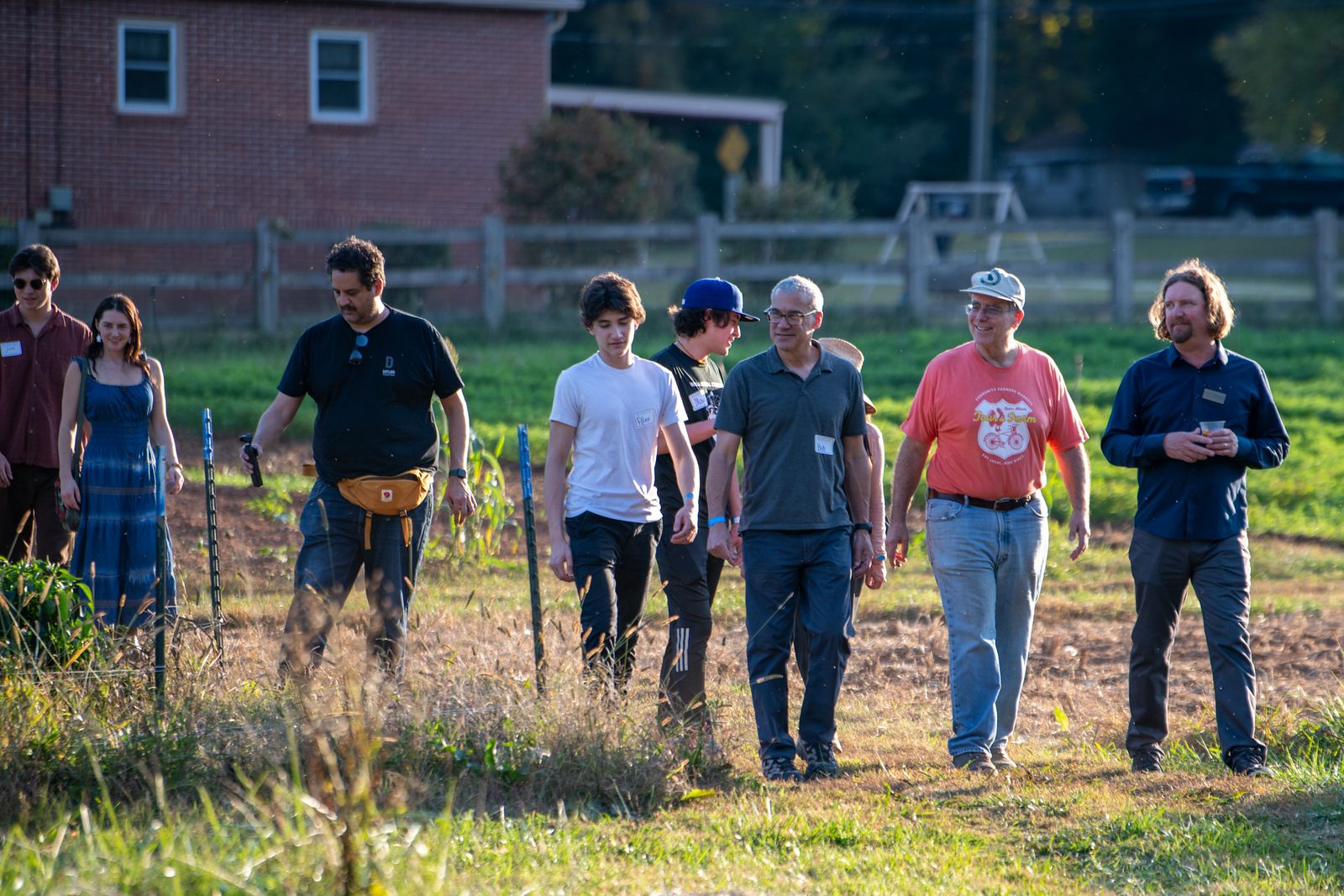
At the farm’s core, the barn houses field equipment as well as the washing fixtures, a walk-in cooler, classroom, and packing areas. Today, the farm’s success is evident in its dedication to growing certified organic produce without the use of synthetic pesticides or fertilizers. On its three planted acres, “We grow 40,000 pounds of vegetables each year, and a portion of that goes to our local food bank,” says Parson.
Daniel Parson, demonstrating honey harvesting to students.
Daniel Parson, demonstrating honey harvesting to students.
“The student experience at Oxford College is enhanced because of our organic farm,” says Oxford Dean Badia Ahad. “The farm is a unique living laboratory that provides healthy food for our dining hall, an opportunity for our students to work on the land, multiple ways for faculty to incorporate farm production and values into their classes, and a connection to our surrounding community through local farmers markets.”
The Oxford Organic Farm has earned national accolades and remains on the list of Top 30 Sustainable College-Run Farms. Much of the food grown on site supplements Oxford Dining and Emory Hospital. With stands of beehives on the grounds, the farm also produces honey. In season, the farm participates in a weekly farmer’s market for Emory and the community and offers a Community Supported Agriculture (CSA) subscription service for produce boxes.
Oxford farm student volunteer.
Oxford farm student volunteer.
Oxford farm student volunteer.
Oxford farm student volunteer.
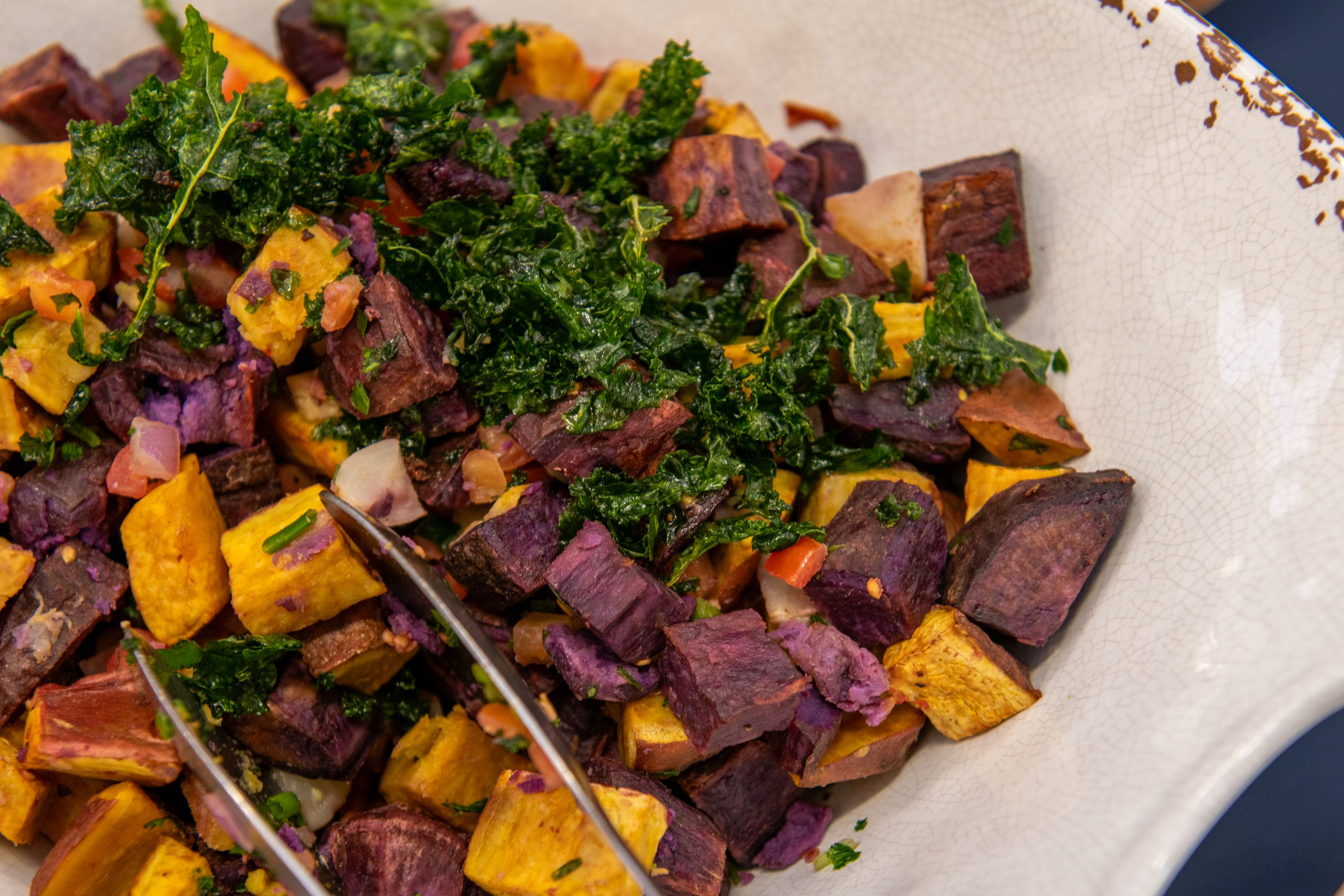
In addition to a bountiful harvest, each year the farm provides a rich array of experiences for students and faculty as well as volunteer opportunities for community members. “The farm’s whole purpose is to grow good food for our campus and community and to provide an educational resource for our students,” says Parson. “We teach what it takes to get food from seed to the plate.”
For first-year student Ella Bjorkman, the farm inspired her to apply and played a role in her decision to choose Oxford. “I’m an environmental major and I thought I could learn more about sustainability and agriculture for my career,” she says.
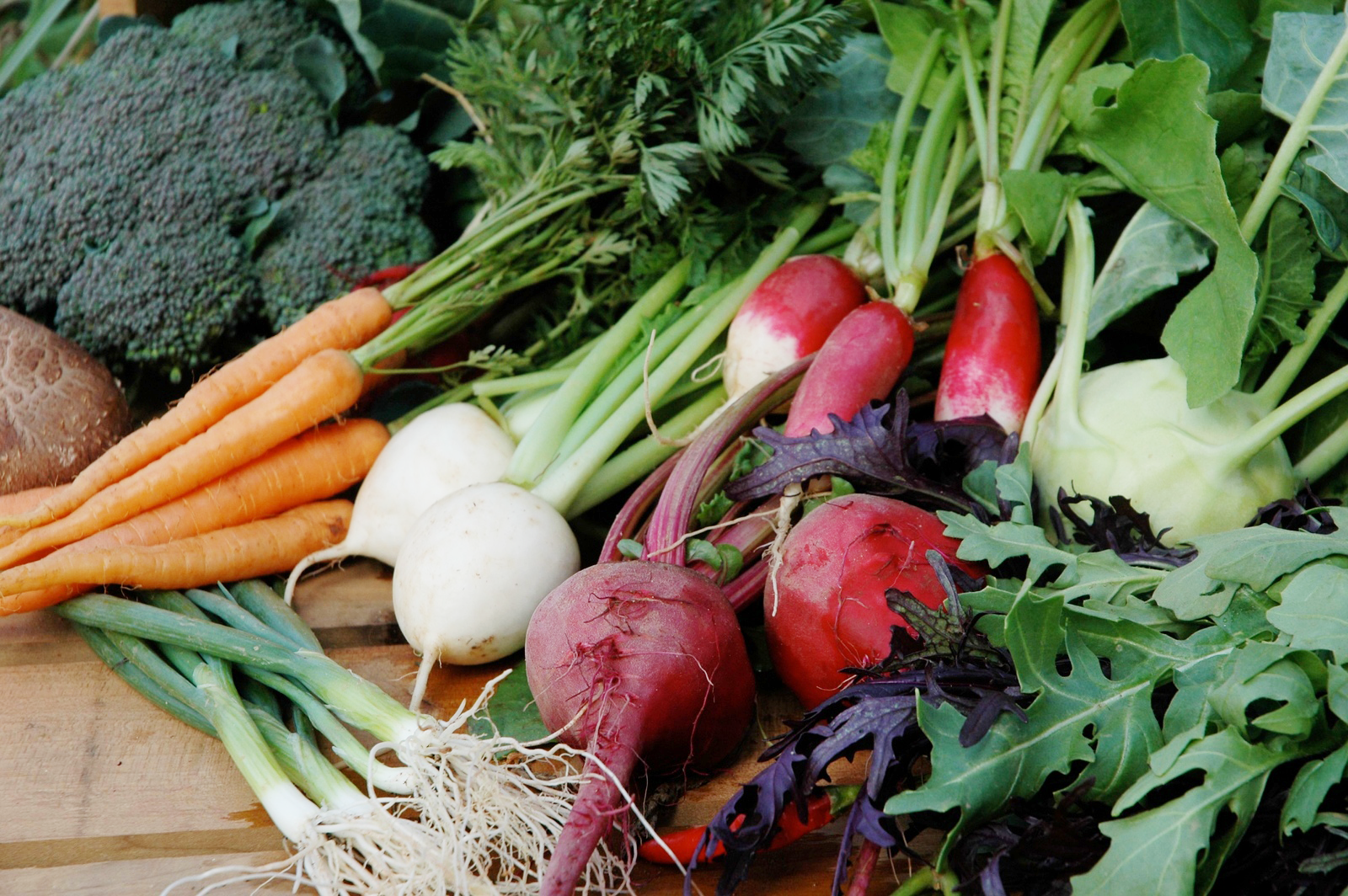
The Farm as a Teaching Tool
As a living ecosystem, the farm plays a vital role in the student experience and professors from distinct academic areas embrace its unique teachings into their curriculum.
“I incorporate the farm into my economics courses in a number of ways,” says Christopher Blake, assistant professor of economics. After a class tour of the farm grounds and a briefing on crop production, students gain a firsthand account of theories in practice. In particular, “They see how Daniel interacts with other organic farmers in the ecosystem of Newton County and the surrounding areas. We use that to teach market structures for students of Principles of Microeconomics.”
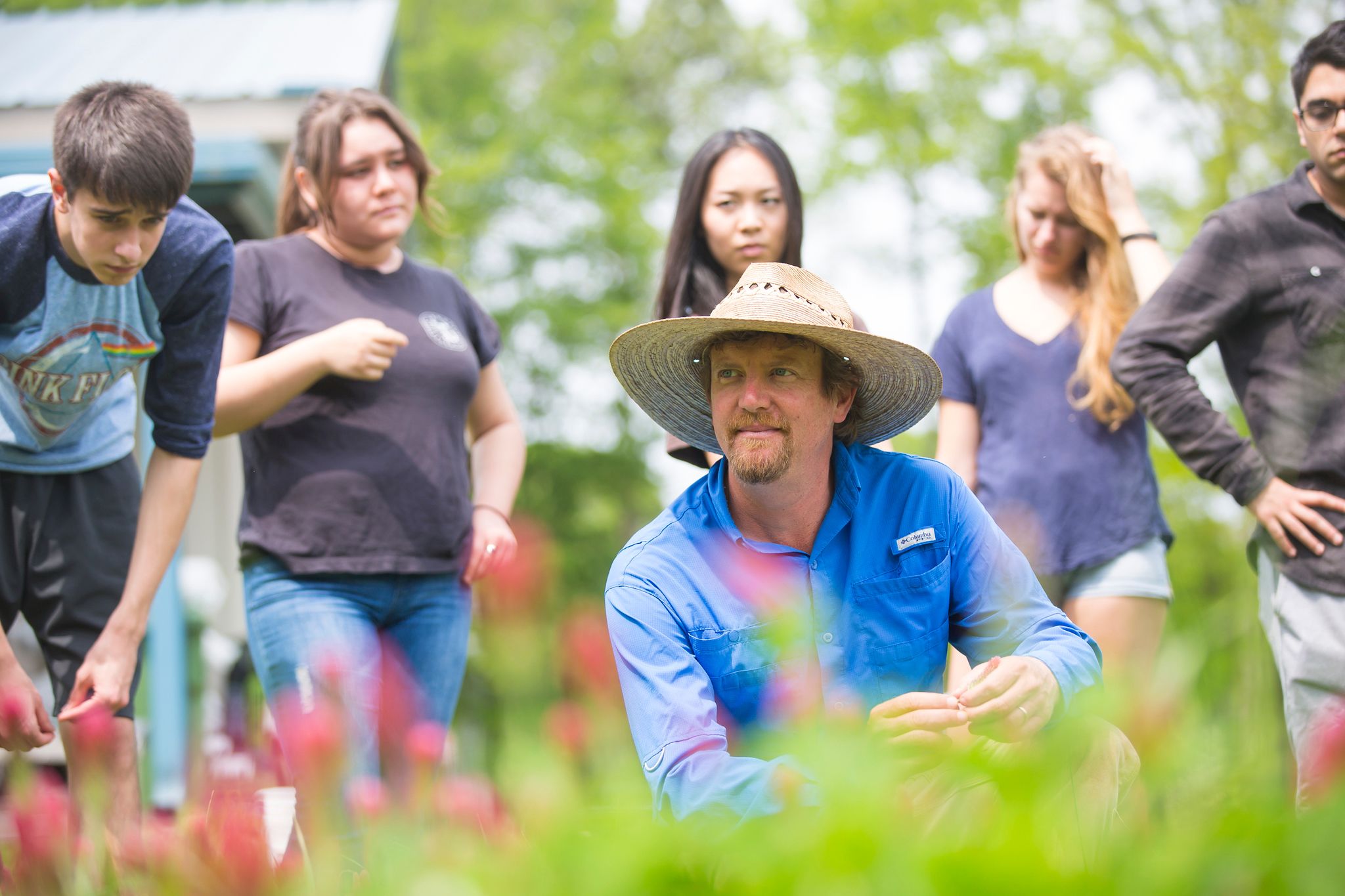
Jeffrey Yan, a junior at Goizueta Business School, reflects on his positive experience working for eight weeks during his summer internship on the farm. After gaining hands-on knowledge of the crops, he broadened his observations. “The farm is a system,” he reflects. With a nod to key takeaways, he says, “In learning about systems, we learn how supply management works, and the farm is a perfect encapsulation. You have seeding, weeding, harvesting, and customer delivery. You can learn a great deal about business with that, including the CSA boxes.”
Students of creative writing, biology, environmental sciences, and business have all studied at the farm. In fact, Oxford’s Director of Undergraduate Laboratories LaTonia Taliaferro-Smith recognizes the powerful potential for her students to advance their research at the farm. As a member of the Cell and Molecular Biology Research Program at Winship Cancer Institute at Emory, Taliaferro-Smith’s expertise is breast cancer research.
“We are always researching alternative therapies for breast cancer treatment,” Taliaferro-Smith explains. “I’ve had students who proposed testing natural products against breast cancer metastasis. For example, we’ve harvested propolis from the beehives and tested various plant components. It’s been fun and amazing, and I’m always eager to incorporate the farm in my research.”
No matter which lens through which a professor or student views the world, “One thing they learn here is grit,” Parson says of the farm experience. “They learn how to get things done.”
Oxford College Dean Badia Ahad with Oxford’s Director of Undergraduate Laboratories LaTonia Taliaferro-Smith celebrating the farm's 10 year anniversary.
Oxford College Dean Badia Ahad with Oxford’s Director of Undergraduate Laboratories LaTonia Taliaferro-Smith celebrating the farm's 10 year anniversary.
Oxford farm student volunteer.
Oxford farm student volunteer.
Oxford organic farm eggplant.
Oxford organic farm eggplant.
Oxford organic farm eggplant.
Oxford organic farm eggplant.
Celebration Memories
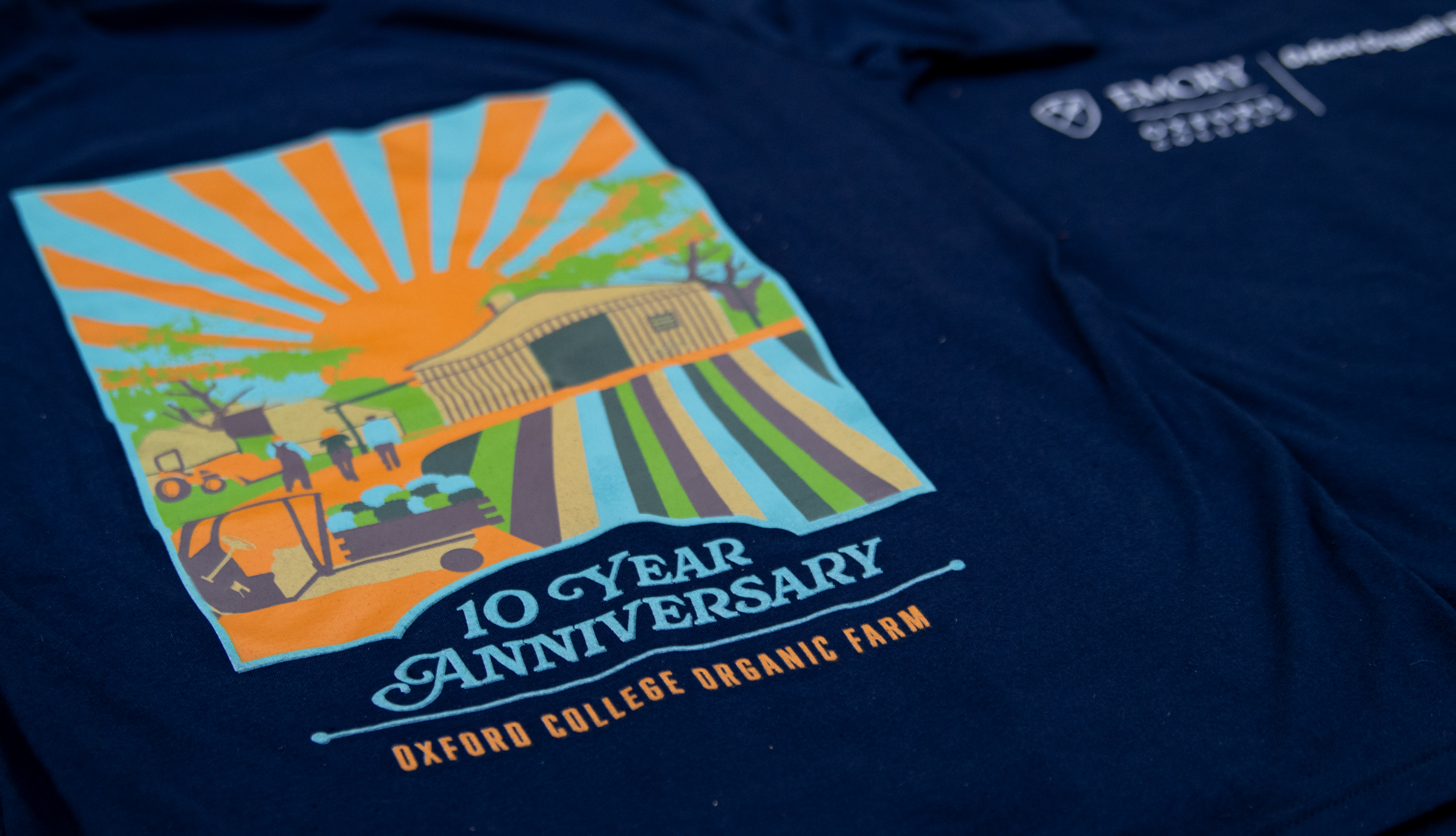
To learn more about farm operations or to explore volunteer or
in-service opportunities, please visit the Oxford Organic Farm.
Oxford College of Emory University | November 14, 2024
Designed by Kristine Gonsalez and written by Michelle Valigursky. Photos by Paul Beezley.

